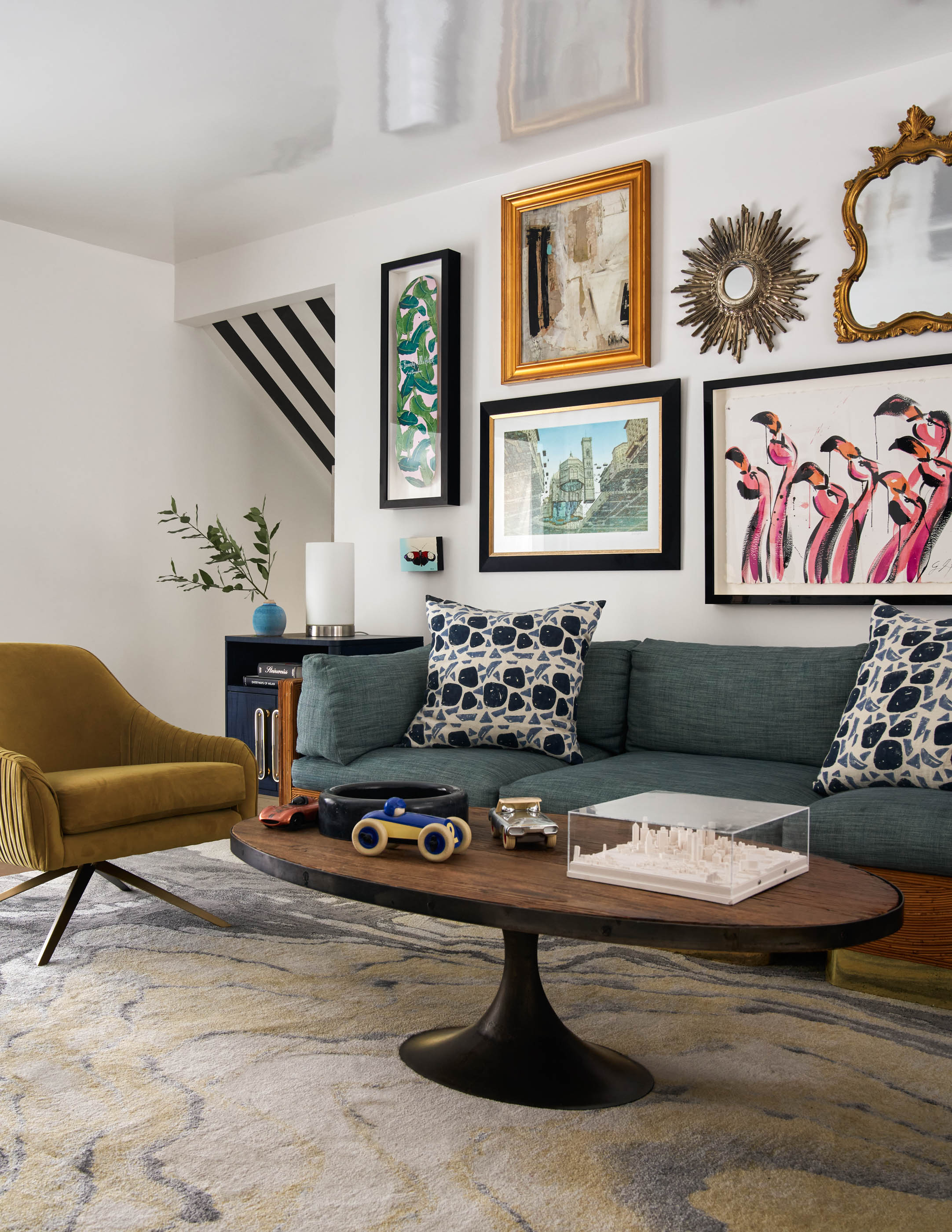
Knowing how to brighten a dark room will ensure that your home feels bright, airy and energizing in all seasons. Designing a light-starved or north-facing living room can pose some challenges after all – although nothing you can't overcome with some clever decorating know-how whether your dark room is the bathroom, living room, kitchen or bedroom.
There are some simple changes you can make. From selecting the best living room paint colors for your space and choosing lighter flooring options, to picking out mirrors and additional lighting that works in favor of your room's existing light levels.
How to brighten a dark room
If you need a bit of help making the most of your dark room, we've put together 26 great ideas complete with experts tips and tricks on how to brighten a dark room and turn it into a cozy, relaxing haven.
1. Choose the right color scheme
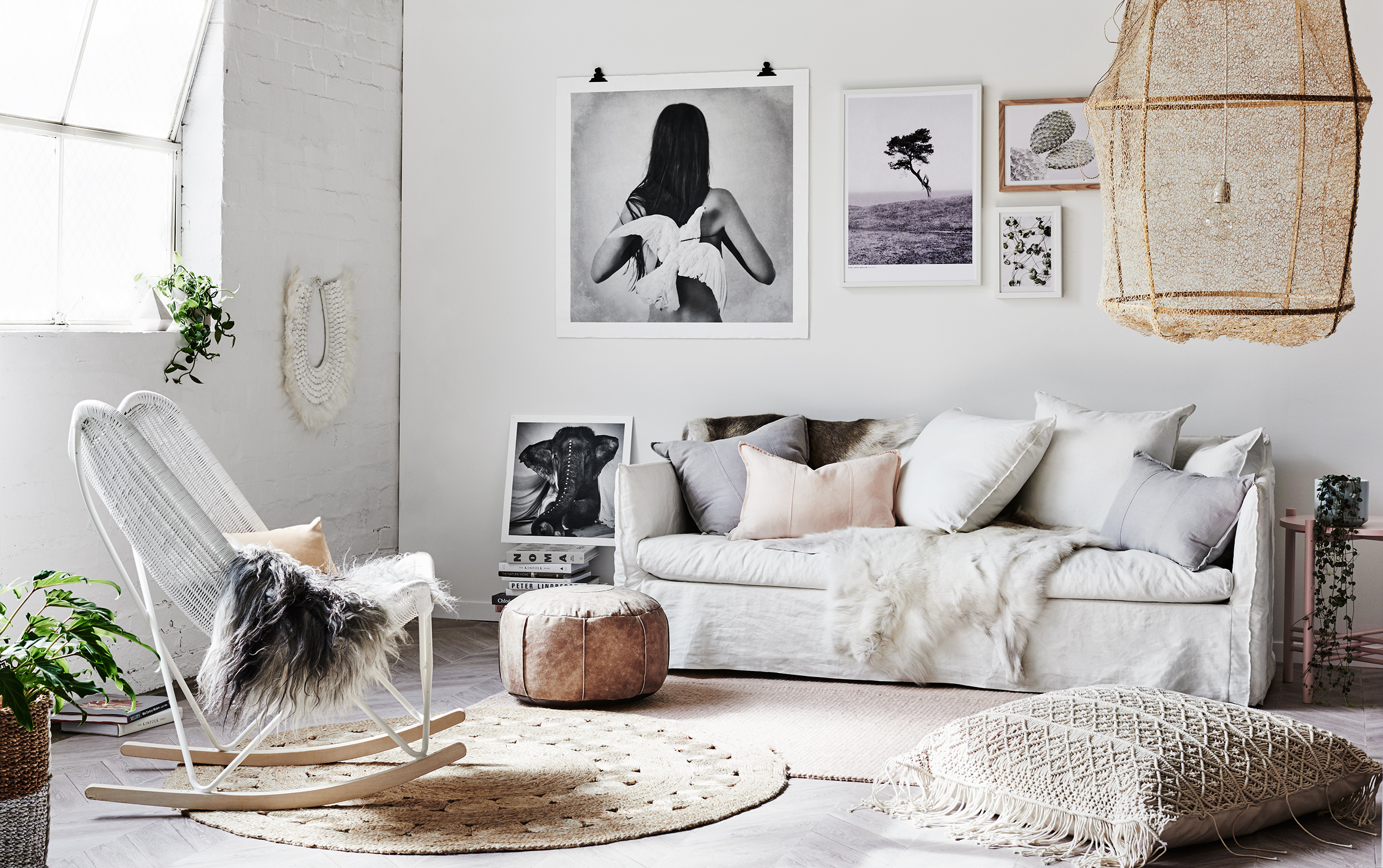
It goes without saying that using light colors in a north-facing space can make a dark room like brighter. White walls are major light reflectors so will enhance any natural or artificial light. Try using colours like Annie Sloan’s Old White or Dulux’s Jasmine White for that light, airy feel. Even warm grey-toned neutrals would have a similar effect or if you want a little color opt for pale dusky pastels or white living room ideas.
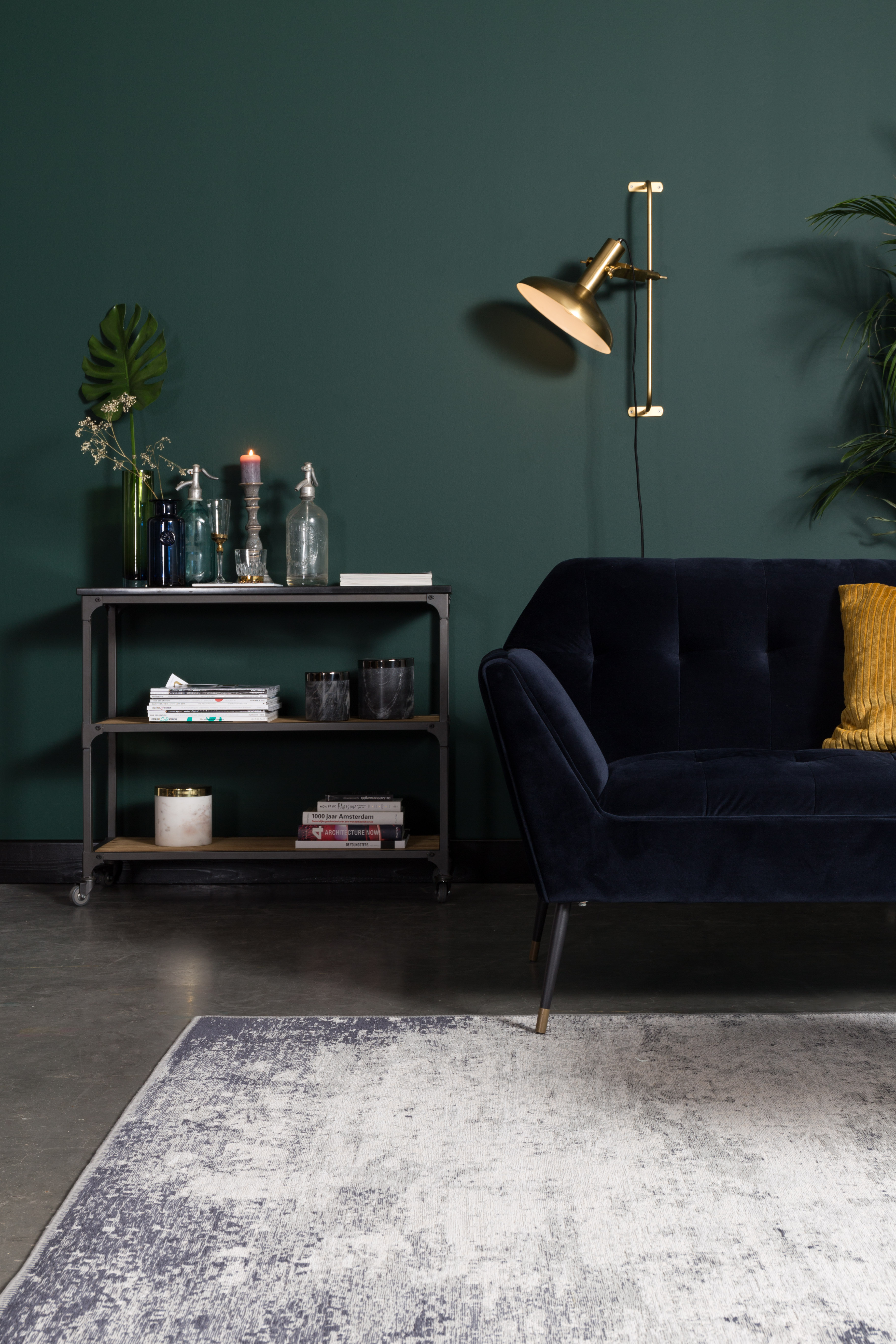
You could always of course embrace the darkness and accentuate it with deep, dramatic dark interior design colors, grey living room ideas and the like. Strong colors like Studio Green from Farrow and Ball create intimacy in a room, making the lack of natural light seem cozy and inviting rather than dim and dingy.
2. Focus on paint color and finish
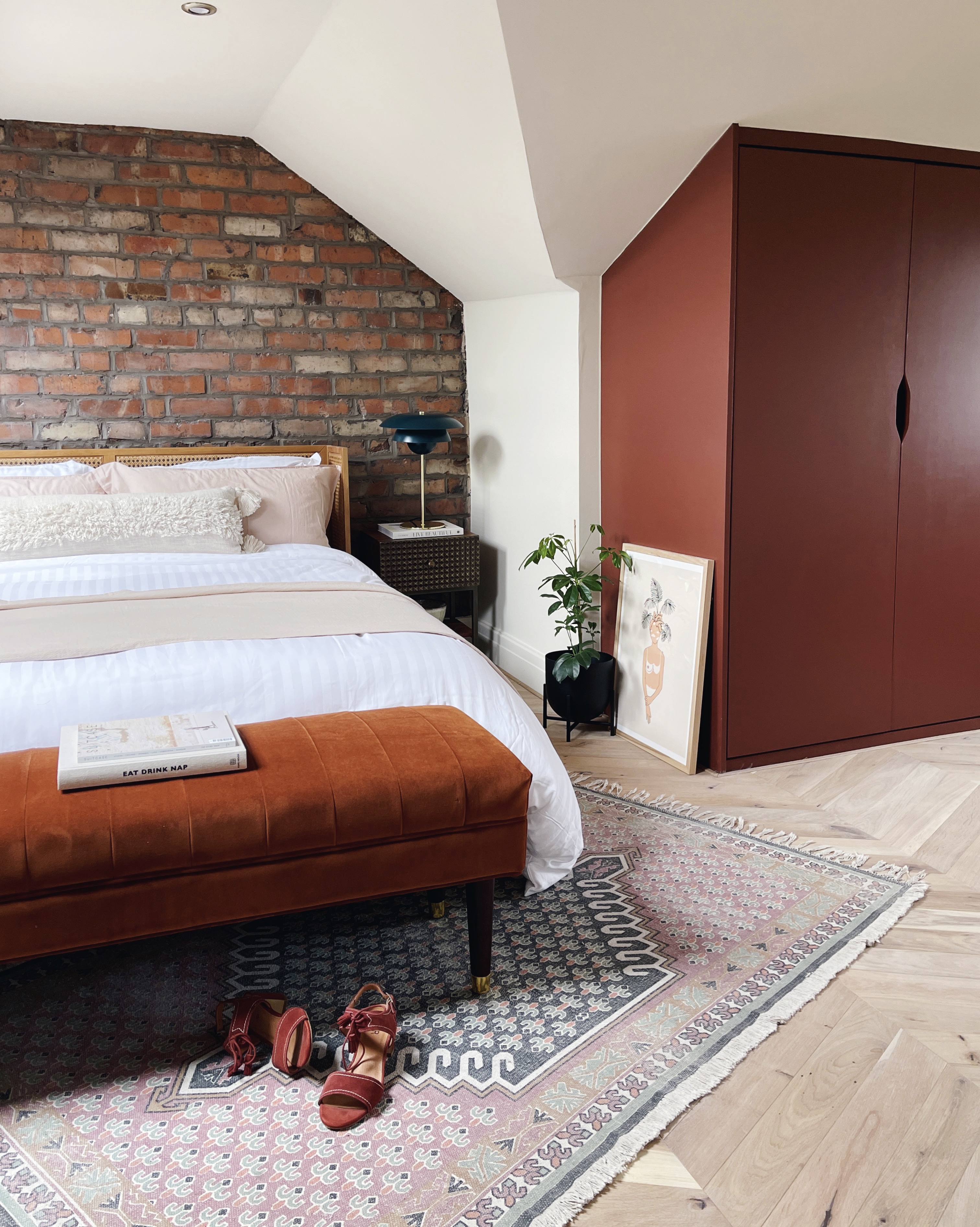
Sure, white is the ‘go to’ color when you want to lighten up a room, but you can also use color or a combination of white and color, as Rob Abrahams, co-founder of Coat Paints explains:
‘Bright colors can work well if you're looking to brighten up a darker room. In darker spaces they can look a little more classy than in a sun-filled room. Less of a play school vibe, and more members’ club.'
'Orange will take a pretty grown-up tone in darker spaces, and can look impactful without being shouty.'
'It's important to bear in mind that the type of paint finish can affect color. Whilst matt paints absorb light, gloss paint reflects it. We recommend a soft sheen finish which can help brighten up dark spaces.’
3. Opt for light reflecting flooring
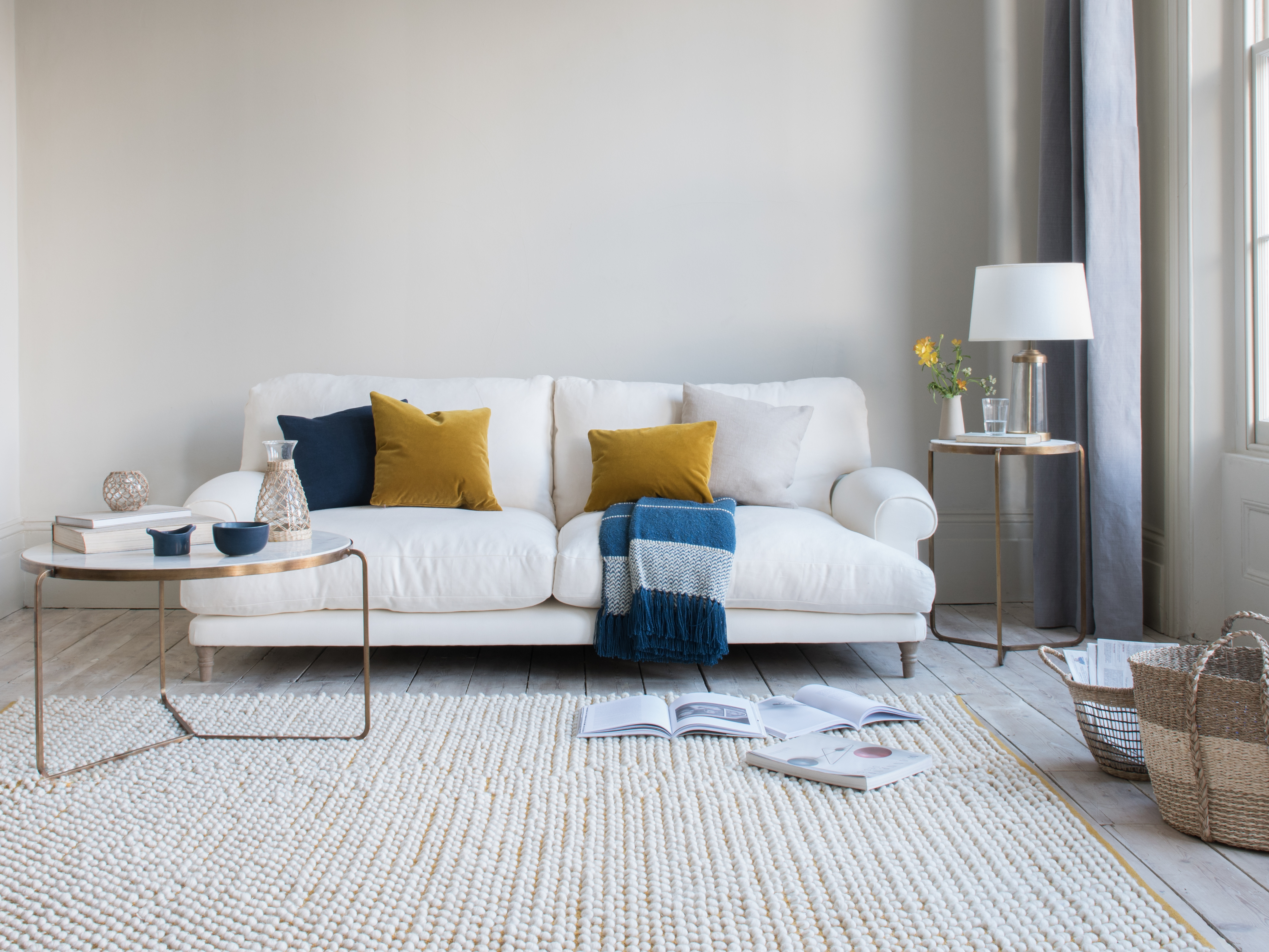
Of course a lighter colored types of carpet is going to reflect the most light, as well as pale hard-wood flooring.
We are loving Scandi inspired white floorboards and they would work perfectly in a north-facing space and help make a dark room brighter. But, if white flooring is just too high maintenance for you, a white washed or pale hardwood floor is another option. And, fear not, if you are designing your living room on a budget there are lots of realistic wood-effect vinyl flooring options out there.
Alternatively, for a quicker way to bring in light, throw down some large natural coloured rugs in jute or rattan – these natural materials will have a similar brightening effect to a cream rug but are more hard wearing and easier to keep clean (or at least easier to keep looking clean).
4. Choose spacious feeling furniture
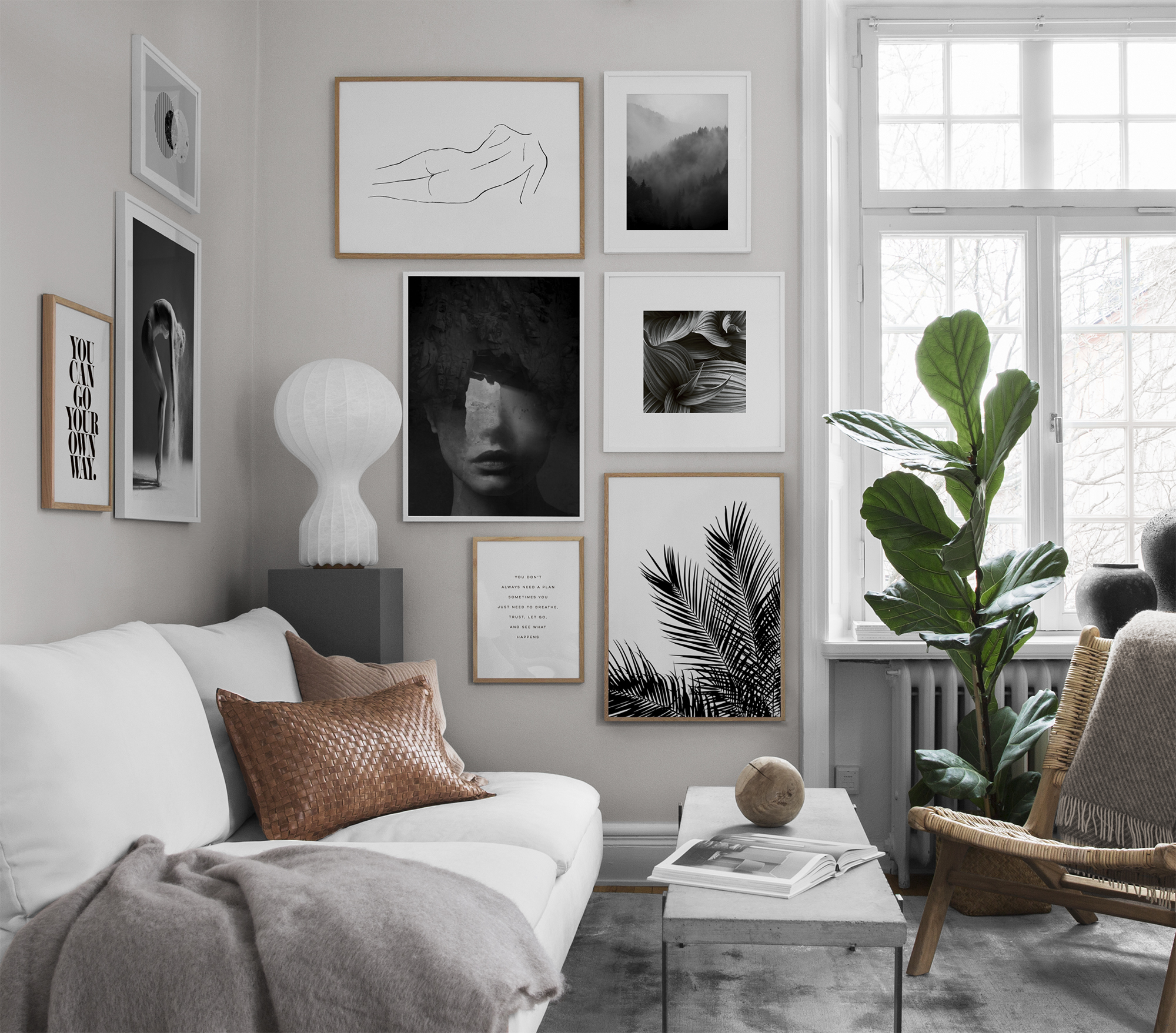
Where you can, avoid heavy, bulky furniture, instead opt for slimline, low slung pieces as you wood when furnishing a small living room, that will allow for as much light as possible to flow around the room. Steer clear from anything too dark and instead choose furniture that is going to reflect light around the room; think marbled sideboards, pale wooden TV stands and mirrored or glass coffee tables.
5. Plan a layout that makes a dark room brighter
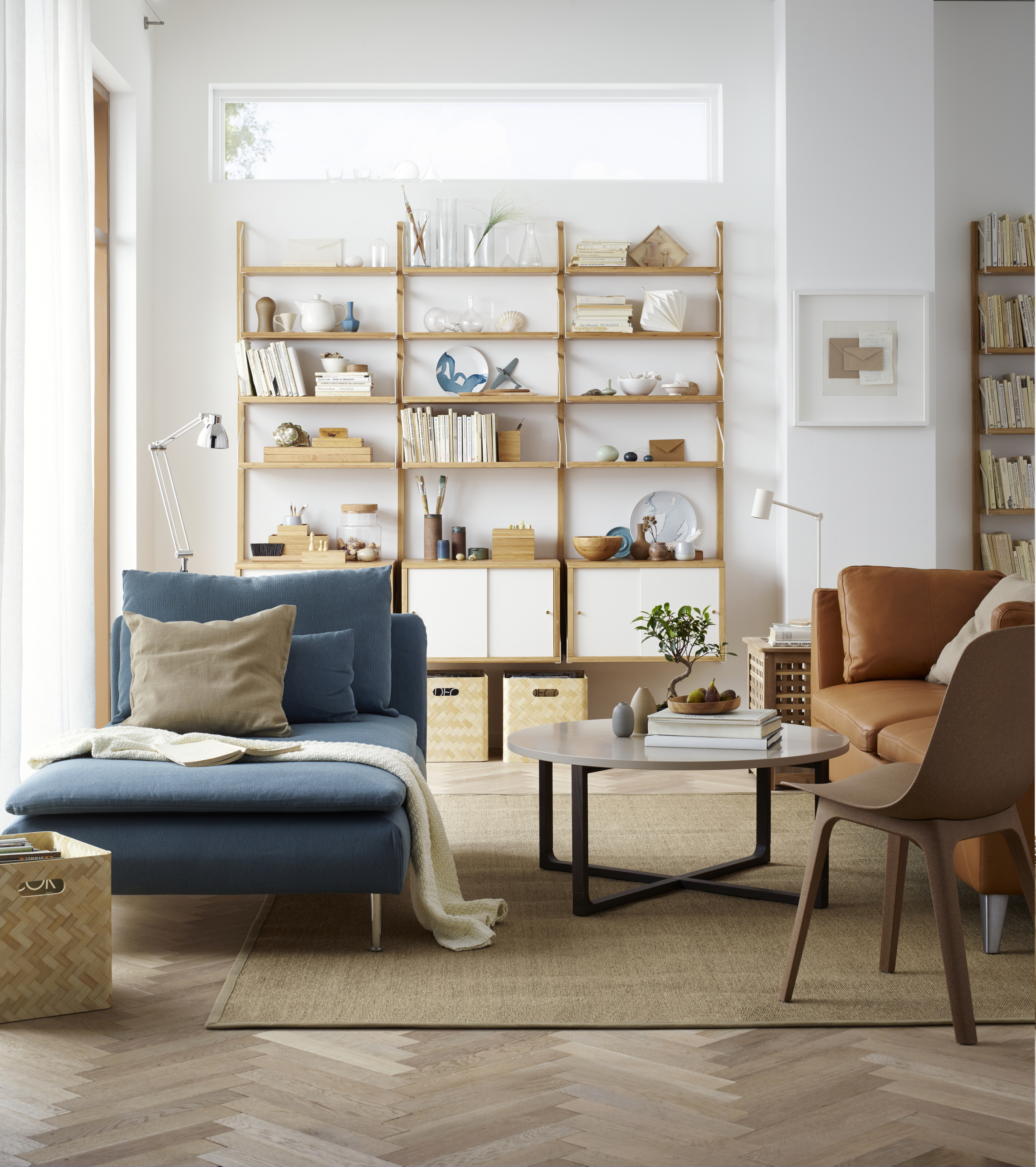
When choosing how to lay out furniture in a north-facing living room, look first at where the most natural light falls. Then think about how and when you use each piece of furniture. A sofa that you only use to slob out on in the evenings is in less need of natural daylight than a reading chair or a home office area, so make sure to place these light dependent items near a window. Avoid putting any heavy, dark furniture near windows as this is obviously going to block out light.
Reflective furniture can have a similar effect to a mirror and will bounce light back into the room so place any items that have a light or metallic surfaces in the areas that get the most natural light.
6. Choose lighting expertly for a well-lit living room
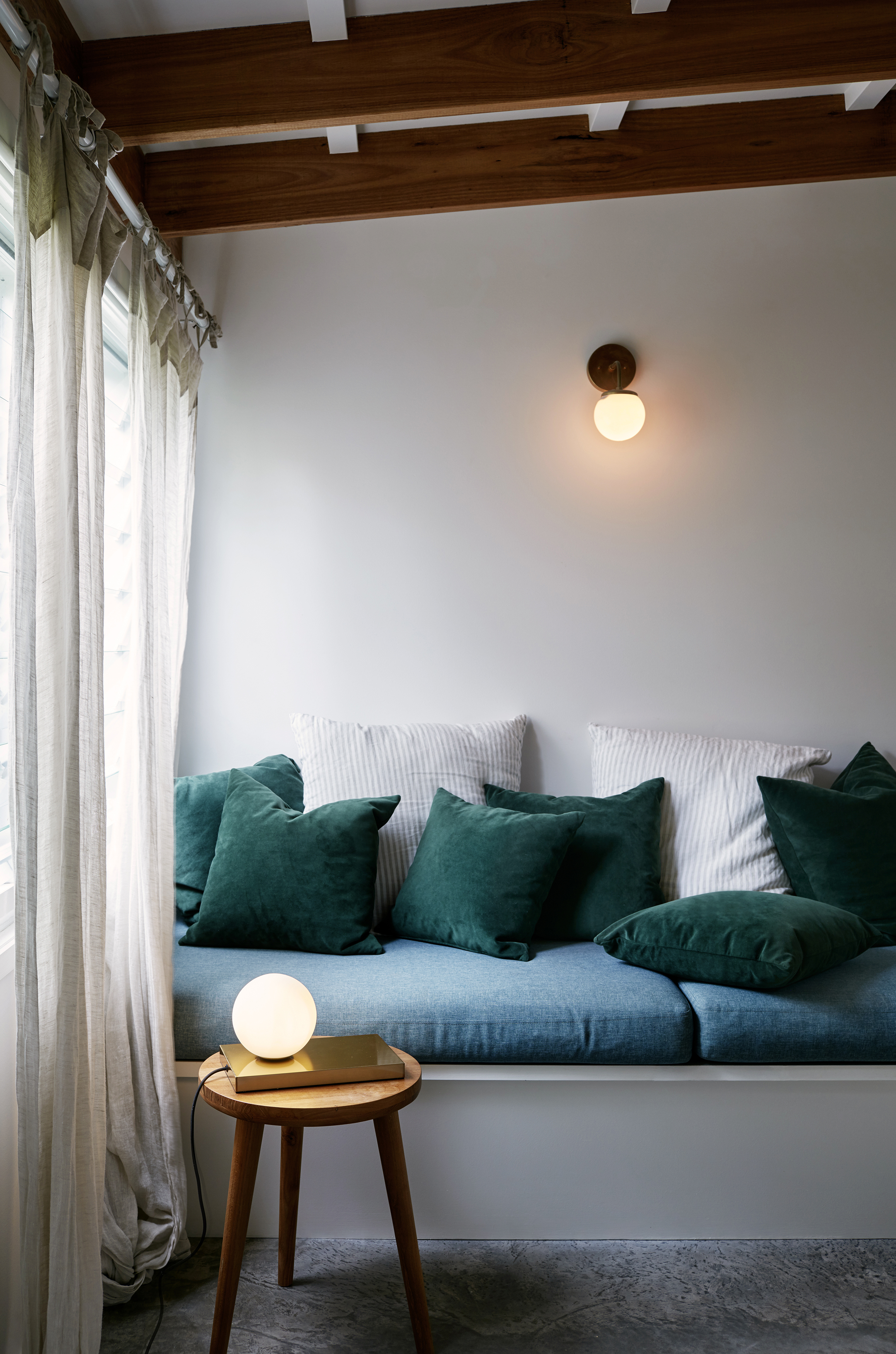
For a well-lit north facing living room – or a well-lit one of any orientation – you will need to incorporate three different types of lighting: ambient, accent and task.
For general ambient lighting in a dim room you will want to create an even layer of overhead lighting. If you are working with a central pendant light just be sure to choose a warm shade or bulb that gives off a welcoming light. Ideally your overhead lights should be dimmable so they can be adjusted at different times of the day.
Once you have overhead lighting covered you want to think about more specific lighting – accent lighting, and task lighting. When it comes to living room lighting ideas, adding different layers of accent lighting is what creates ambience in this space, so we recommend having at least three different sources. Evenly space tables lamps, wall lights and floor lamps throughout the room, mainly sticking to the edges as this will create a warm, even glow that bounces inwards.
Light bulbs can also make an impact. Choose warm bulbs to counteract the harsh light or daylight light bulbs which are designed to replicate natural light.
7. Choose light-enhancing curtains and blinds
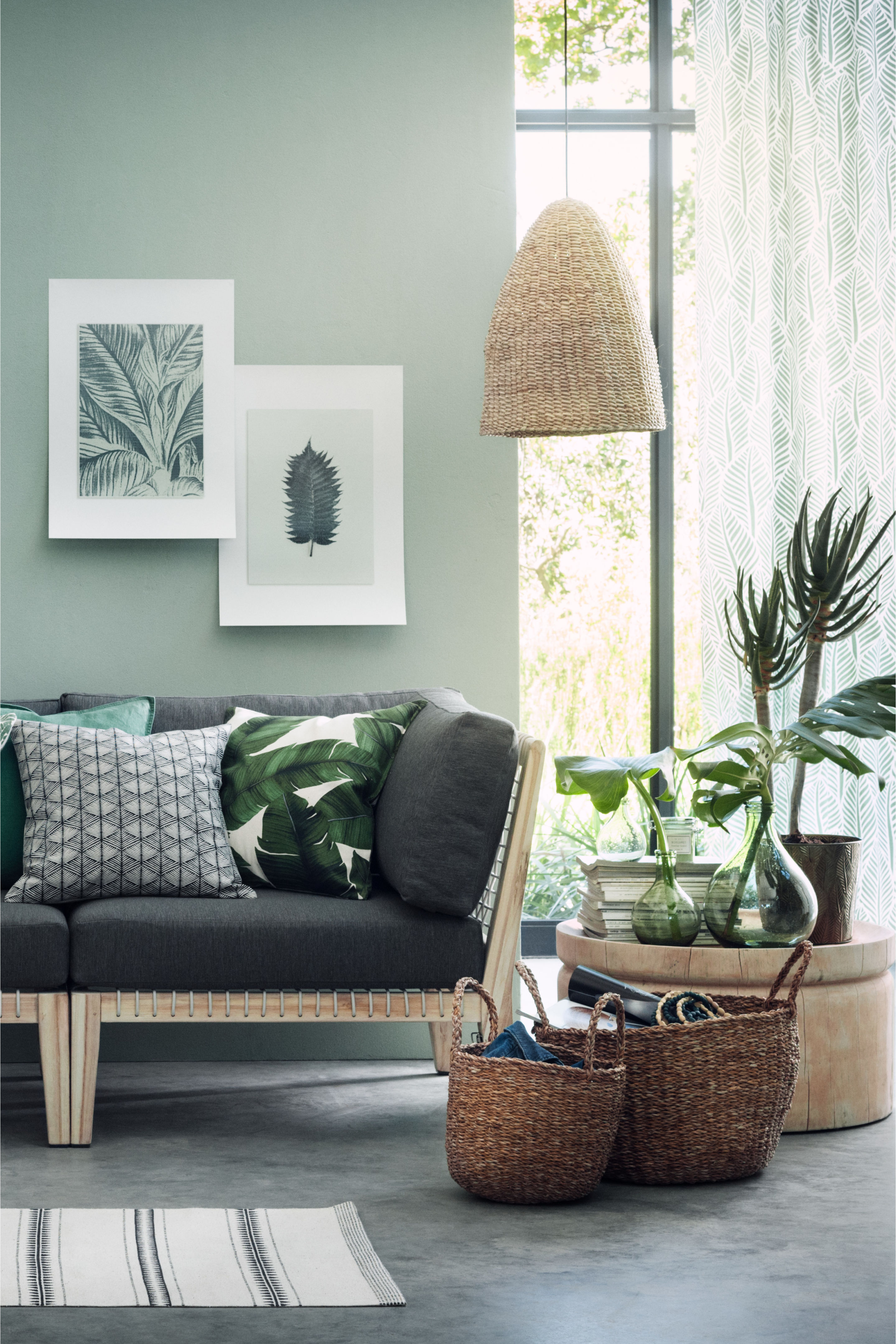
Different types of window treatments such as blinds: vertical, Roman and Venetian all work well in a north-facing living room as long as you choose a light or sheer fabric and ensure they can completely retract so as not to deter natural light. Fussy, heavy living room curtains will always partially block out natural light so opt for curtains made from a light, sheer fabric, and make sure your curtains are hung so that they can be pulled right back against the wall and don’t obstruct the window when open.
8. Bring in more light with reflective wallpaper
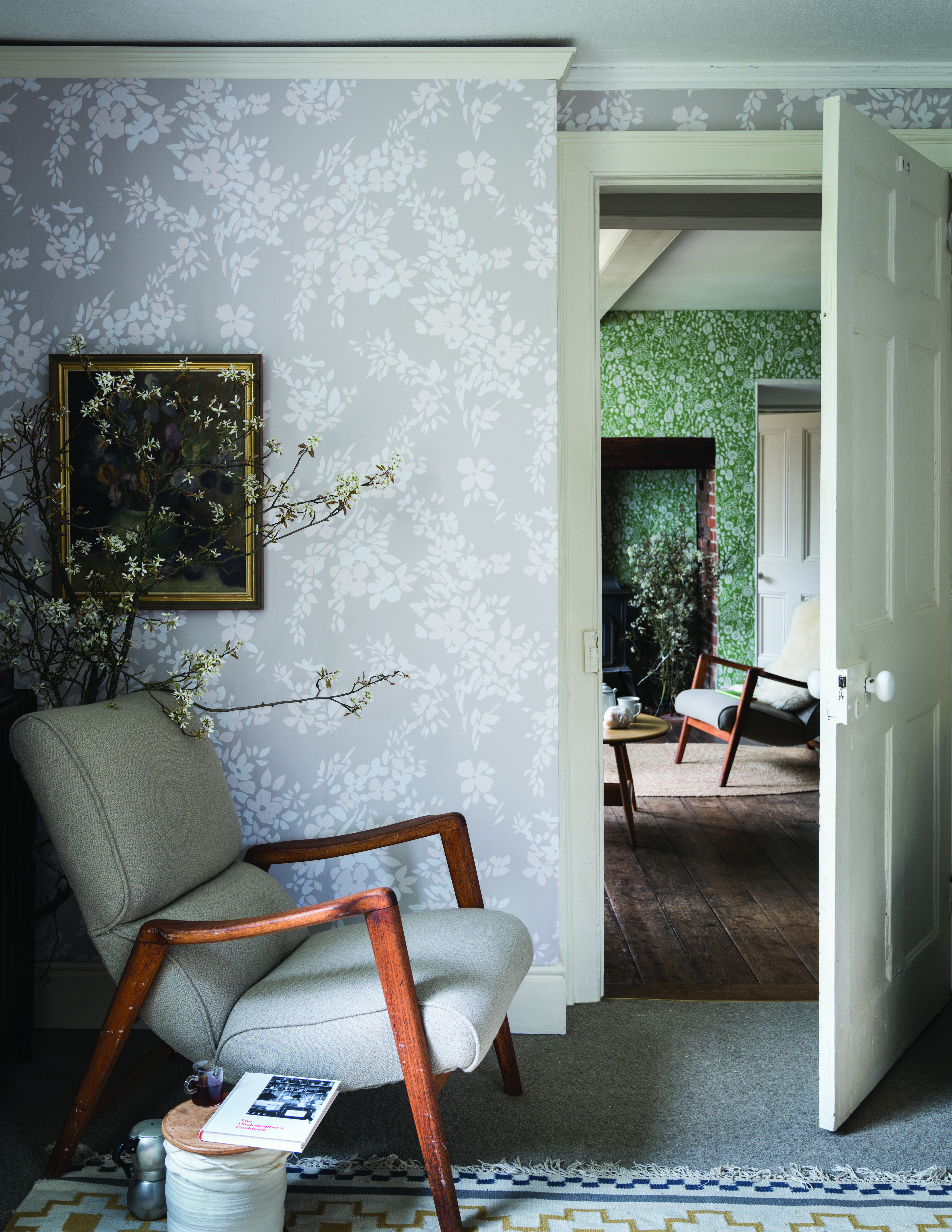
Wallpaper is your friend when it comes to making a dark room brighter. Choose a living room wallpaper that has a metallic finish and a pale background colour to maximise how much light it will reflect. We love the subtle print of Farrow and Ball’s Hegemony and it would perfectly suit both a traditional living room and a more contemporary living space.
9. Use strategically placed mirrors to add light
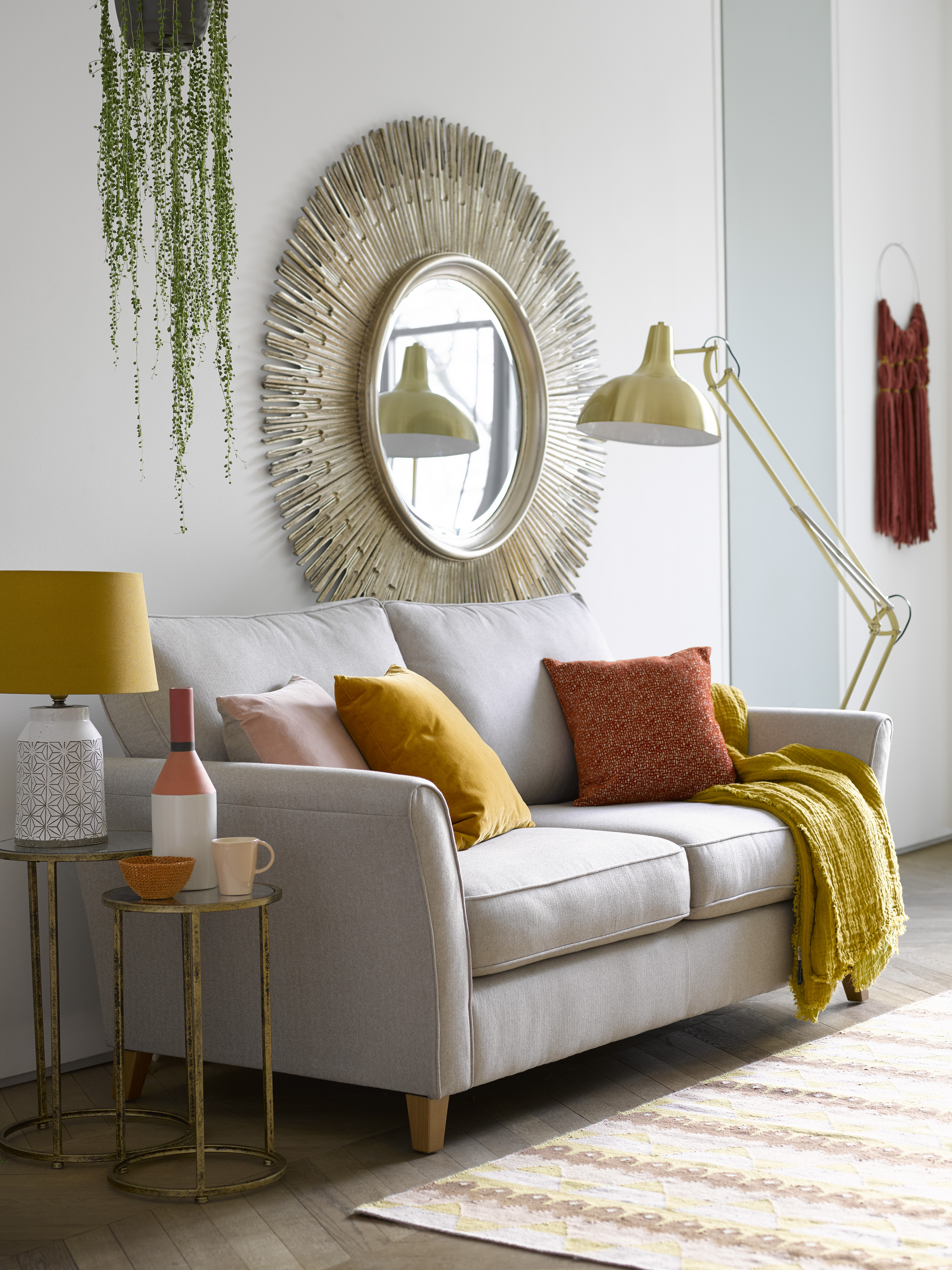
We all know this one, using different mirror ideas to help create the illusion of more space and light is the oldest design trick in the book. Placing a mirror on the adjacent wall to your biggest window will reflect the most light, and obviously the larger the mirror the better, so go as big as your living room can handle. If you are working with a small living room design, choose a mirror with a thin frame, it can still be generous in size but won't overwhelm the space.
10. Hide away living room clutter to up light levels

A clean aesthetic is always going to make a room brighter so, we hate to say it, but that means organizing everything that has accumulated in your living room. Invest in better living room storage ideas that work for your space, and get all that light sucking clutter hidden away.
11. Keep window sills clear to banish shadows
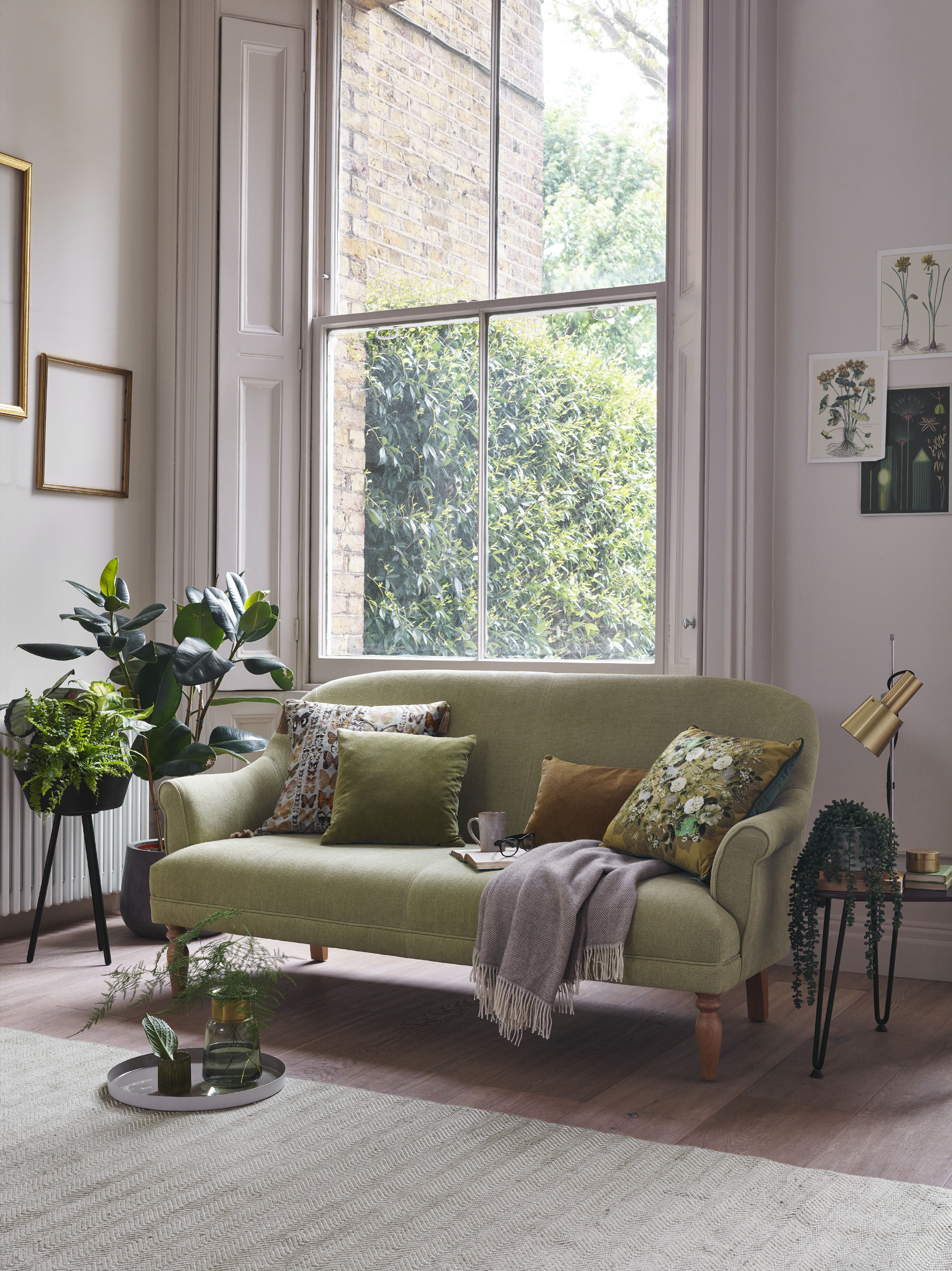
Filling up your window sills with knick knacks, house plants and neglected half-read books? It may look lovely but a cluttered window sill is going to prohibit light, so keep them clear to allow as much light to flow in as possible. If there are certain items that you just love having on show, opt for keeping them in open storage instead.
If you keep house plants, keep large, dark plants clear of windows and instead group them around the edges of the room.
12. Add personality (and light) with reflective accessories
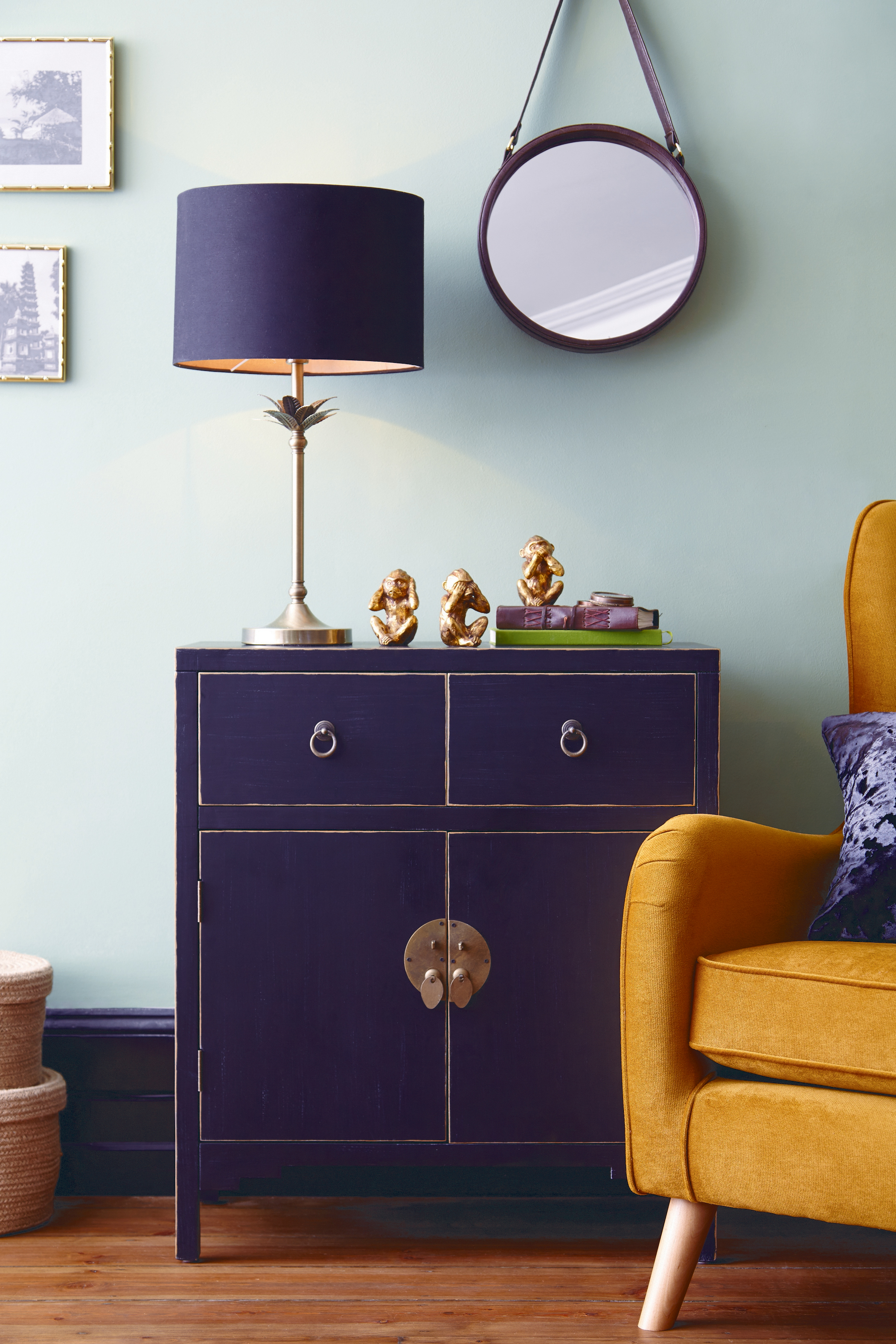
Yep, even the smallest things in your dark or north-facing room can make it feel brighter. When picking accessories for your space, choose pieces that will reflect light around the room. Metallic vases, mirrored picture frames, marble candle holders, copper plant pots, you get the idea.
13. Go for ‘see-through’ furniture
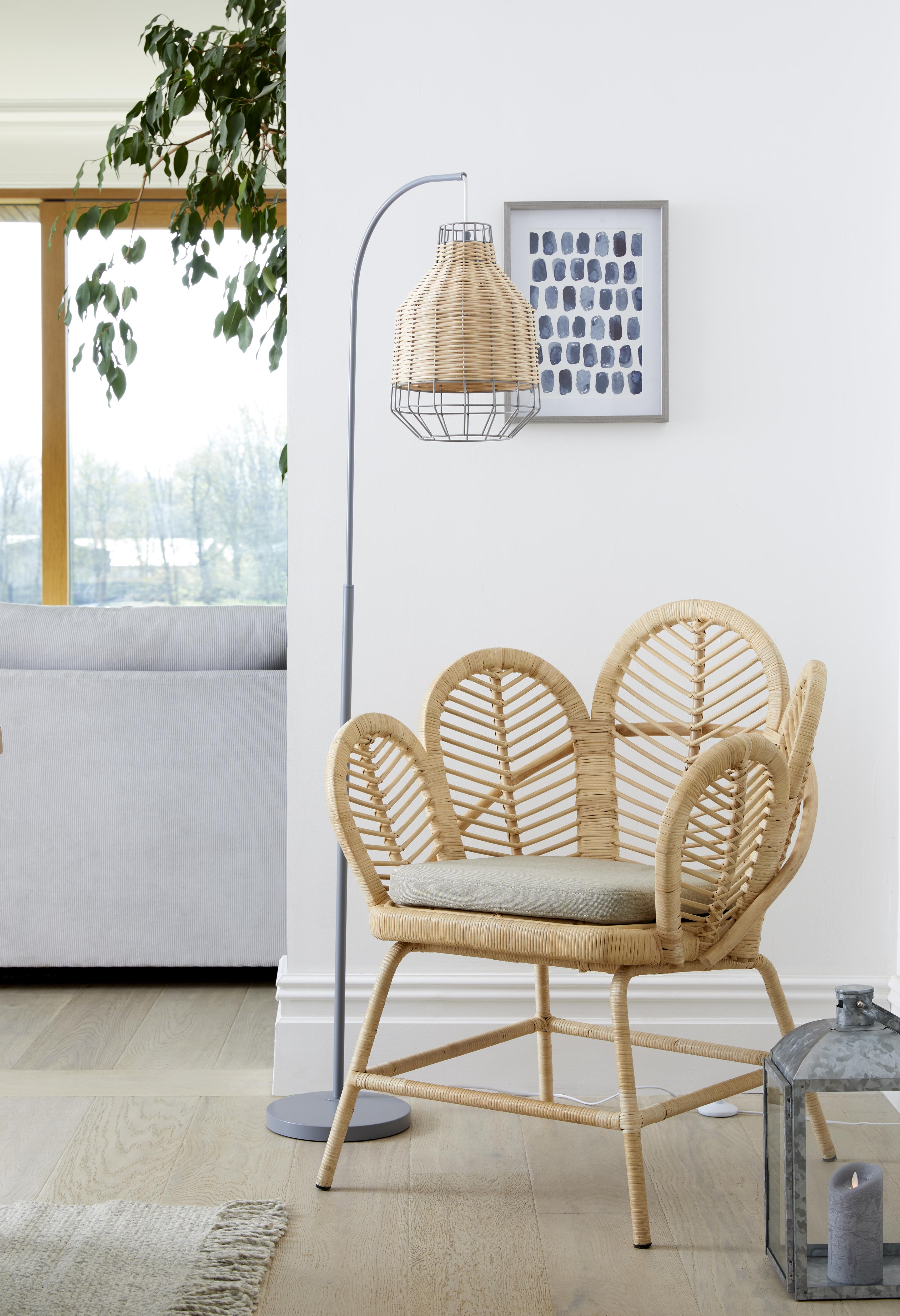
When you need to add more light to a room there are several tricks you can use that are obvious, however, there are also some more subtle things you can do.
For example, furniture that you can ‘see-through’ is a godsend, solid pieces of furniture will block the light and if they’re dark in color they will seem chunky and rather block-like. A chair like this is light and airy in every way, the same goes for the pendant light too.
14. Pick a pale sofa if your walls are dark
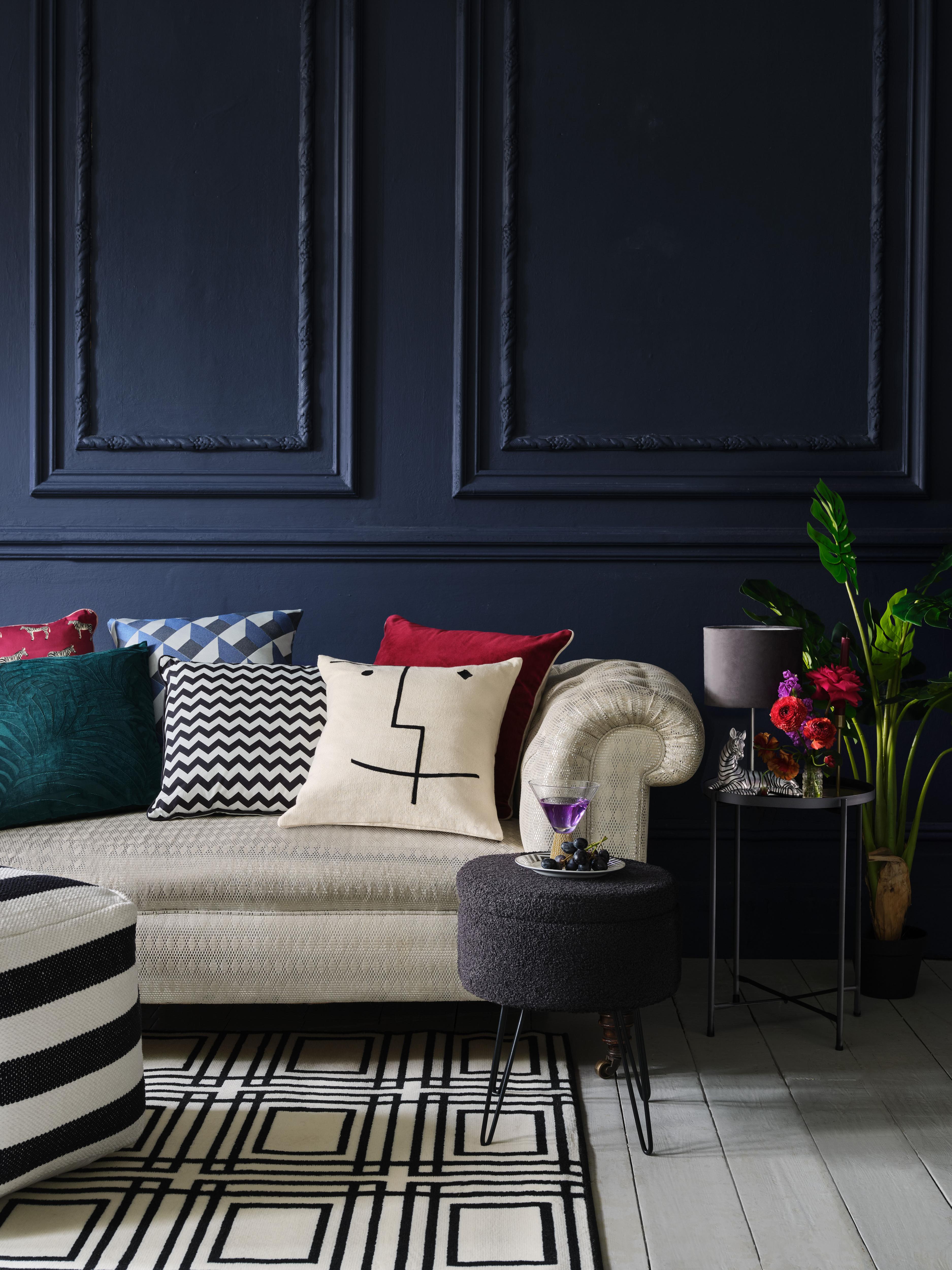
We know having a pale sofa can ring alarm bells - ‘a pale sofa, are you mad?’ However, if you are able to keep it clean then it’s a surefire way to quickly lift an otherwise dark scheme.
The inky blue painted paneling is dramatic and super stylish, but it can make a room feel like it’s coming in on you, so use the main piece of furniture in a living room – the sofa – to be that contrast. Add in a cushion or two and some stripes and you’ll really notice the difference.
15. Add a white kitchen island and backsplash to a dark kitchen
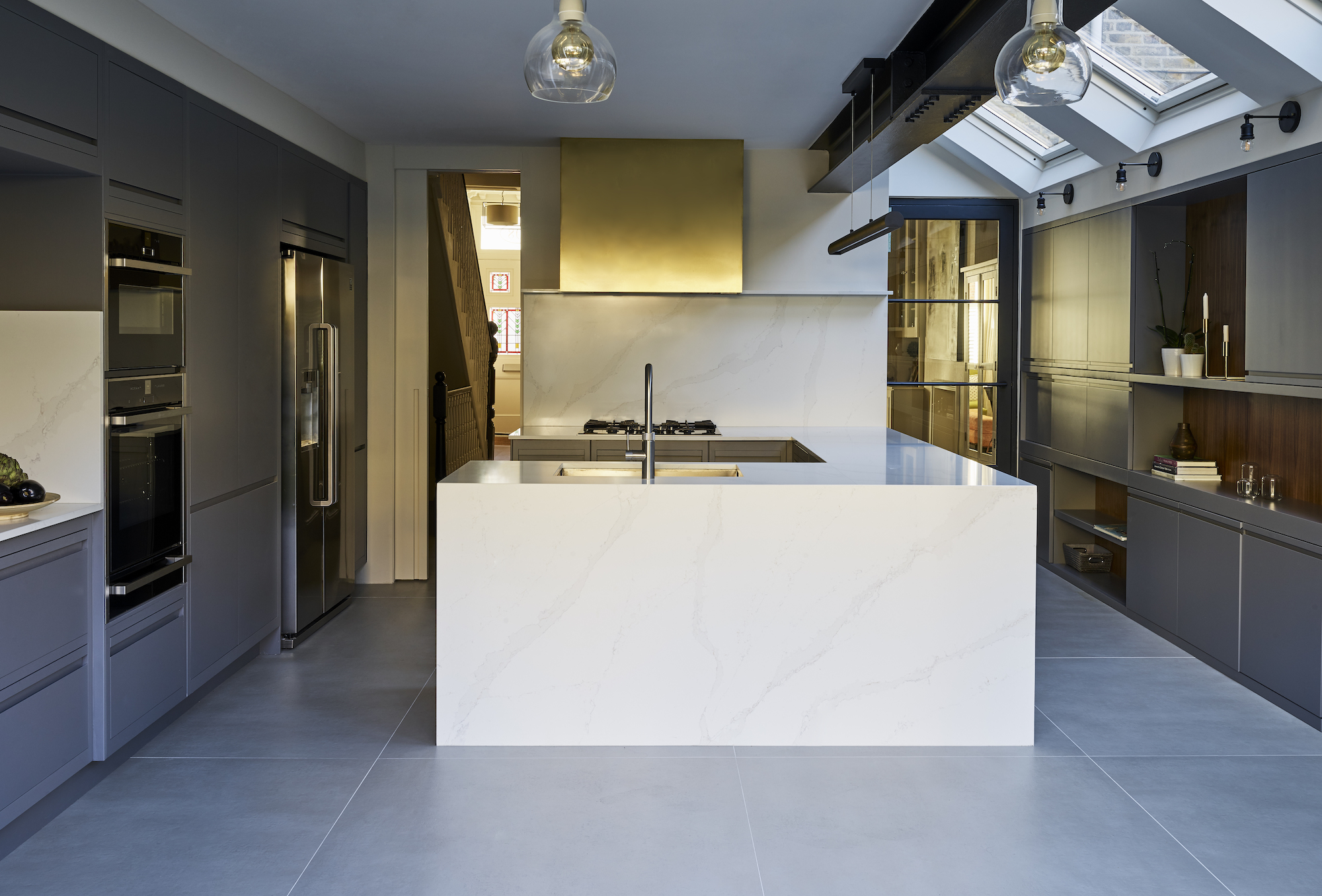
If you love your existing kitchen scheme but it’s dark and a little dull, then you can brighten up by upgrading your kitchen island. A lighter and brighter design will lift the scheme and if you add in a white ceiling and touches of gold that will really make a huge difference.
‘If you’d like to make more of a statement, a gold cooker hood is sure to reflect all light available and add a touch of glamour,’ advises Melissa Klink, creative director at Harvey Jones.
16. Use gold to add warmth
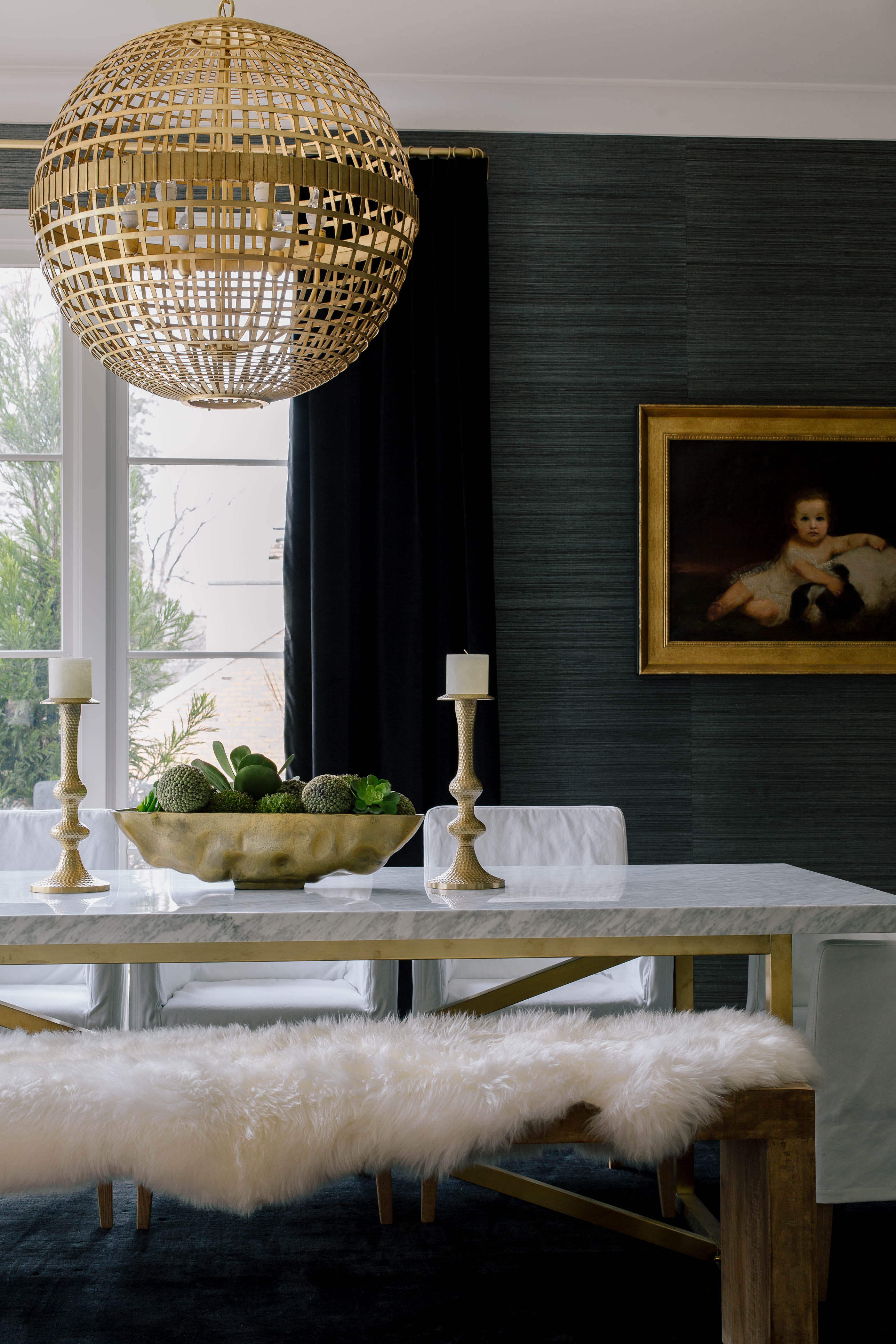
If you do love a dark scheme but want to add a touch of light, you can do it by using warm metallics like brass and gold. The soft golds used in this dining room design created by Lauren Harmon, interior designer, ASID Allied at Nashville based JL Design explains:
‘This dining room is definitely a favorite! Anytime someone is willing to go bold and dark on walls and flooring, we always want to add punches of light, bright finishes to contrast the space. This white carrara marble dining table with brass accents was the perfect bright pop that this space needed.'
'The dark backdrop of the grasscloth and draperies really allowed the table to be the center of the show. We were fortunate enough to have this giant window that allowed the natural light to come in and, literally, shine a light on this gorgeous setting.’
17. Have a light colored headboard in your bedroom
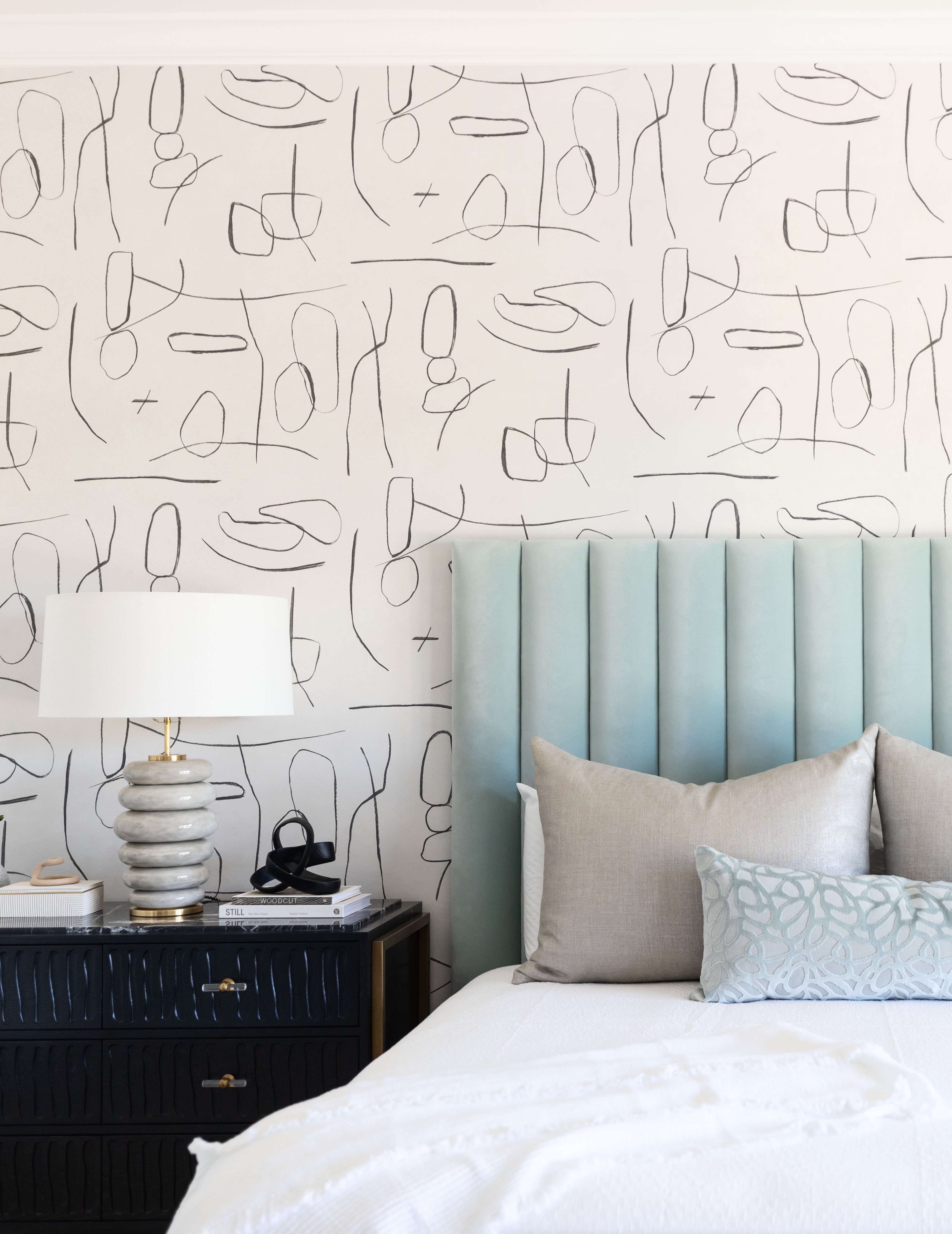
We tend to choose dark or at least deep colored headboards because they often are the focal point of our bedrooms – the statement piece.
So when your room is small and dark, then this is the time to go for light and textured. You can still create an impact, but in a more subtle way. Match accessories to it and go for an overall more subdued yet still beautiful scheme.
18. Balance the light and dark from floor to ceiling
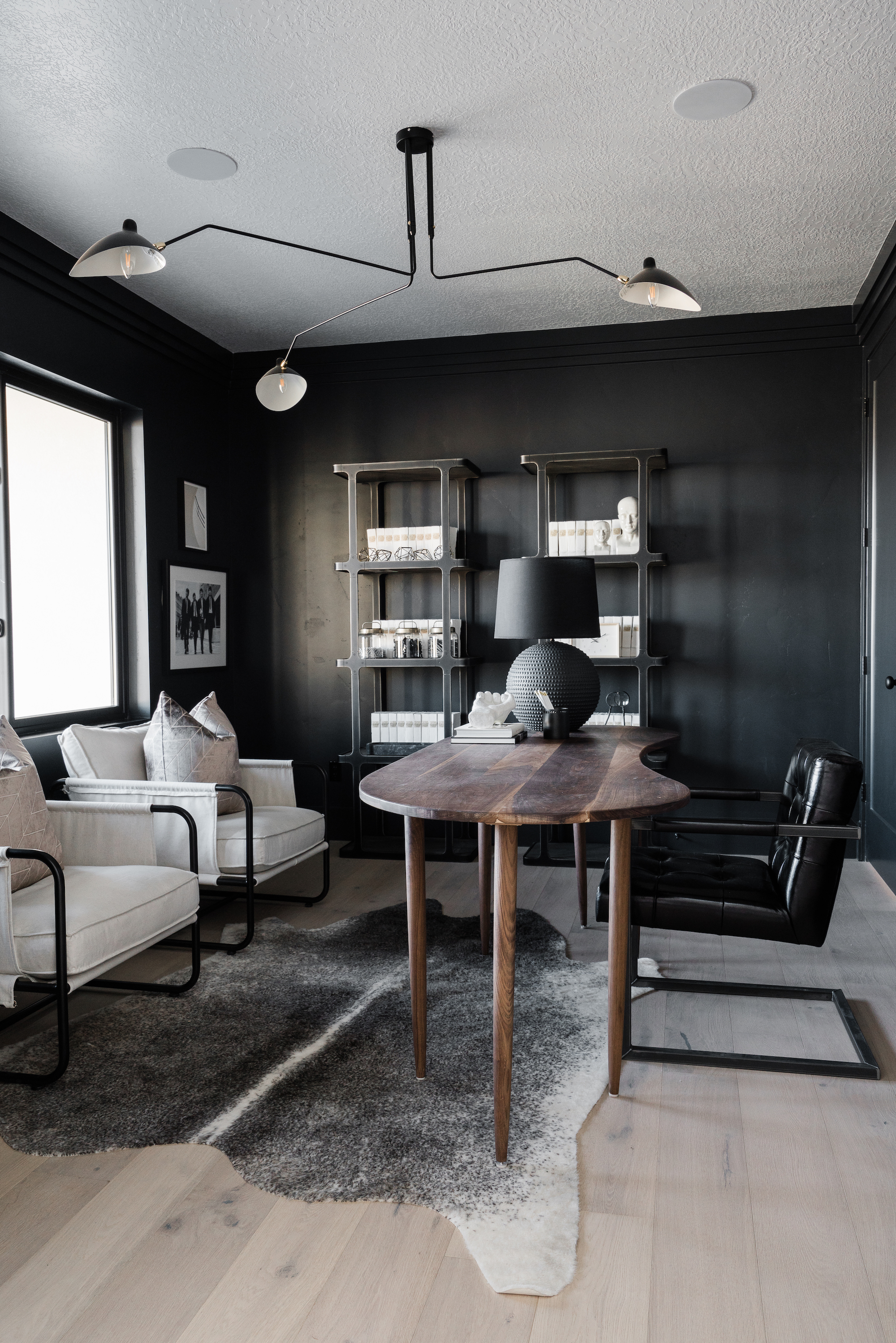
We’ve mentioned adding a lighter floor above, and that really is a great idea, however, if you do love black and want to go for a monochromatic scheme then you need to carry the white (or paler shade) throughout the scheme to create a balanced look.
In this modern home office, the black is in the middle of the room – the walls and the chair. Then you have a pale floor and white ceiling, predominantly white chairs and white accessories on the shelving units. This all creates a visual balance that prevents the black from taking over. So even though this room is small and has black walls, it doesn’t feel dark.
19. Add a colorful gallery wall and a touch of lacquer

One of the key interior design features in this retro living room designed by Texas based Maestri Studio, is that the ceiling is painted with a lacquer as Eddie Maestri, AIA, principal architect, creative director and owner explains:
‘For this space, we used white walls and a lacquered white ceiling to brighten up the space. The lacquer reflects light and the mirror quality gives the perception of more space.’
So that’s a great idea to copy to brighten up one of your spaces. The other idea here is the gallery wall – bright and cheerful artwork will lift a space especially if they have elements of white within the design or background.
20. Introduce pattern and print
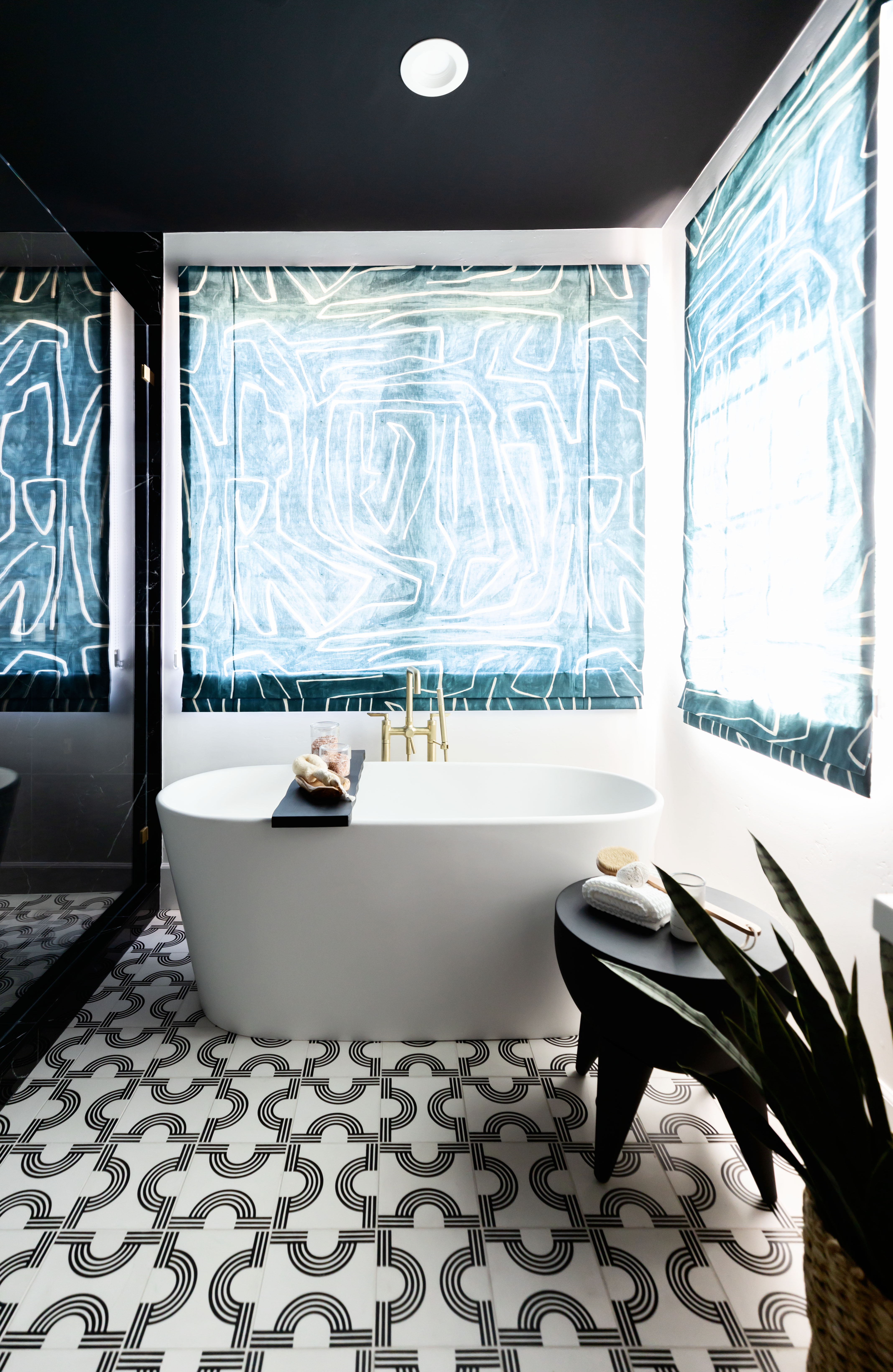
What’s great about this bathroom is the blinds allow the light to seep through whilst also giving your privacy.
The linear pattern highlights the white design and ties in really well with the monochromatic tiled floor. The rest of the scheme is white which balances out the black accessories.
‘This moody bathroom space was brightened up using a patterned white tile and brushed brass plumbing, says Lauren Lerner, founder and principal designer at Living with Lolo.
21. Let in natural light with open shelving
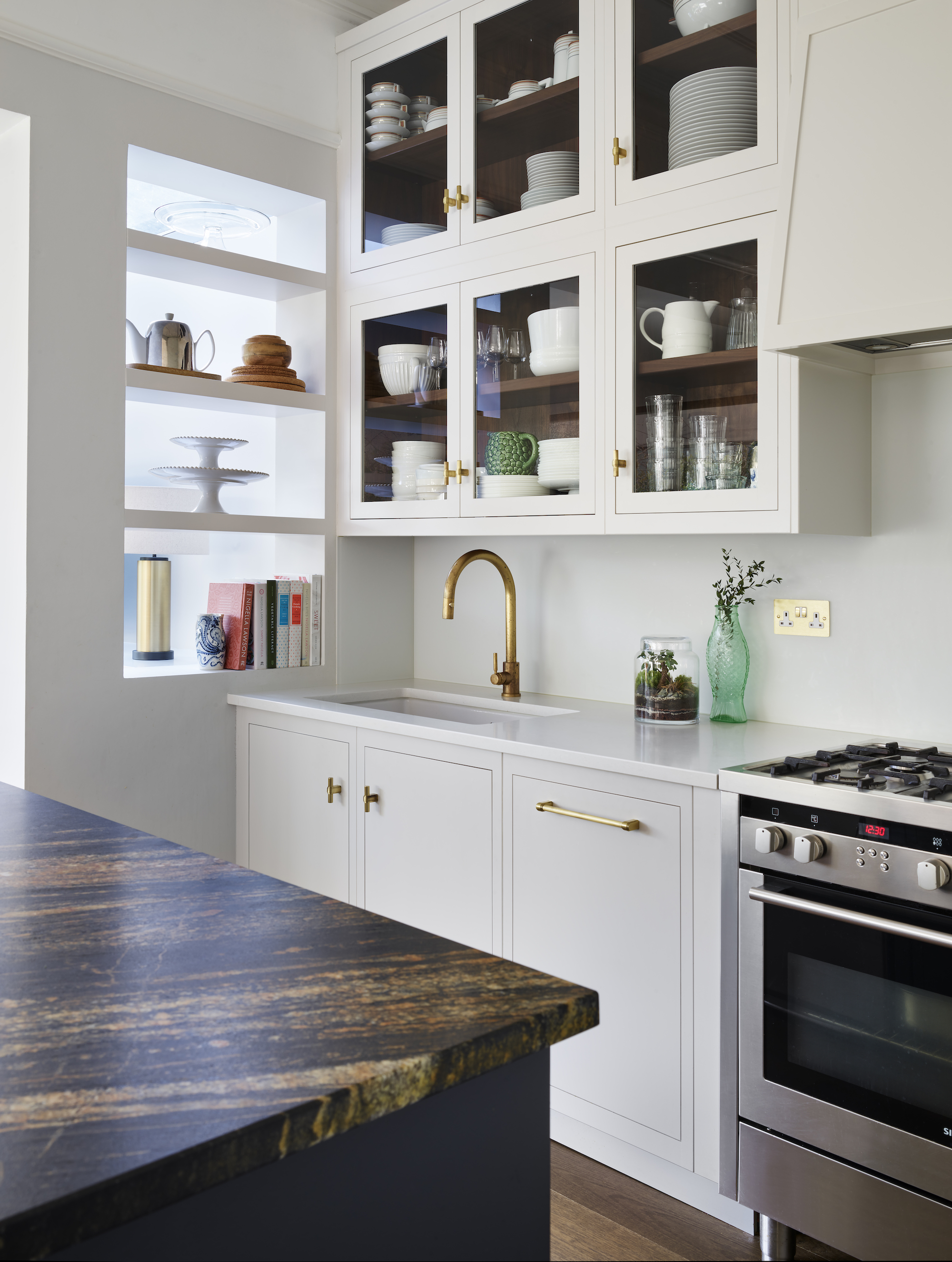
‘The best thing about open shelving is the openness itself,’ explains Melissa Klink, creative director at Harvey Jones.
‘Visually, replacing wall cabinets with shelves will make the kitchen feel airier, brighter and more spacious. Open shelving allows all your important items to be accessible, but it’s also great for displaying decorative pieces that will add interest to the space.’
22. Consider the scale of wallpaper designs
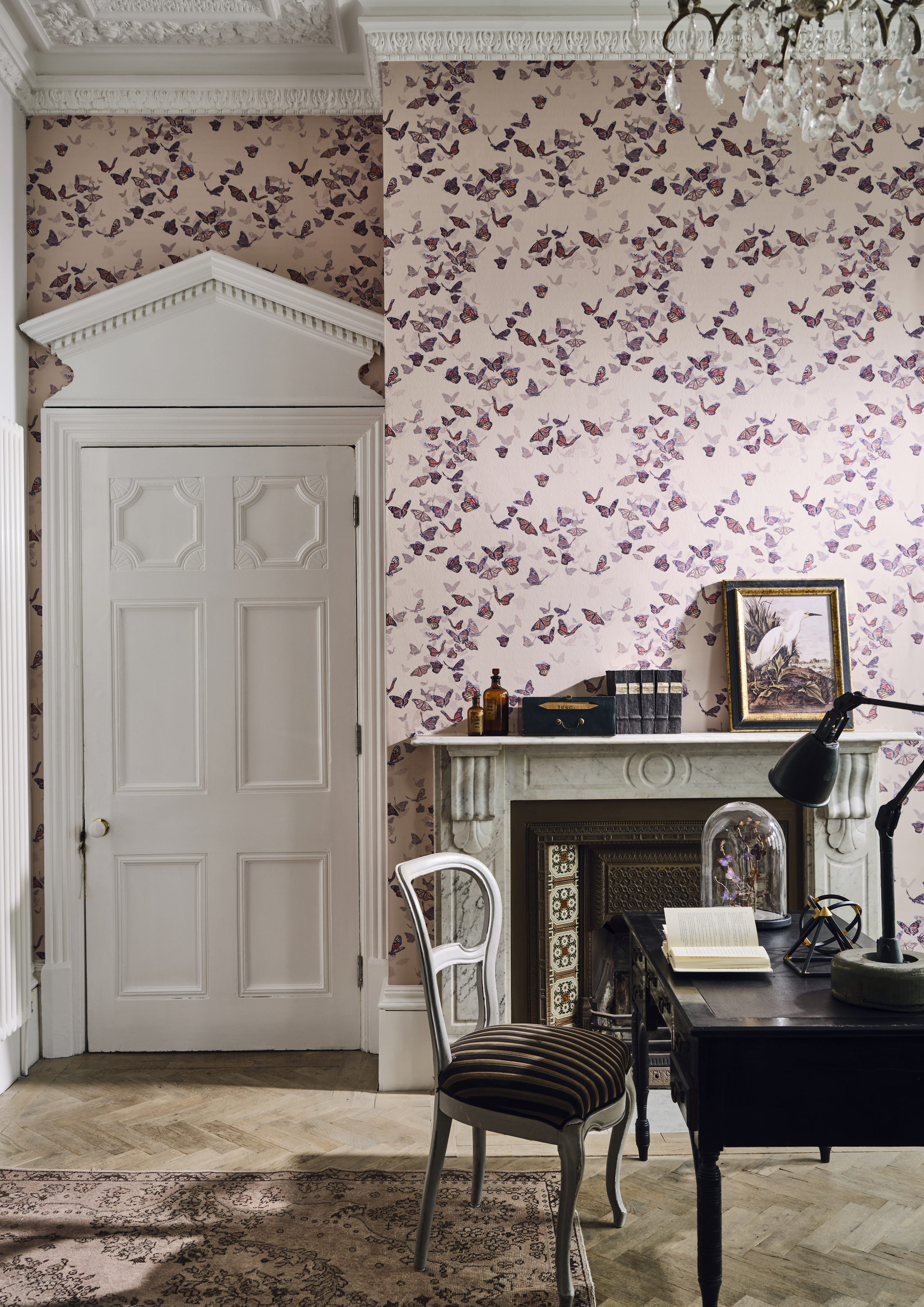
Melanie Adams, global manager at Wallpaperdirect gives her top top on brightening up using wallpaper:
‘Lighter colors are known for their ability to reflect light around the space but when using wallpapers, scale is important too. Too large a print in a small space can bring the walls in, so consider the proportions and scale of the room when choosing a wallpaper. Smaller patterns with a lighter ground color are a good choice if working with a smaller space.’
23. Use light colored tiles as a kitchen backsplash
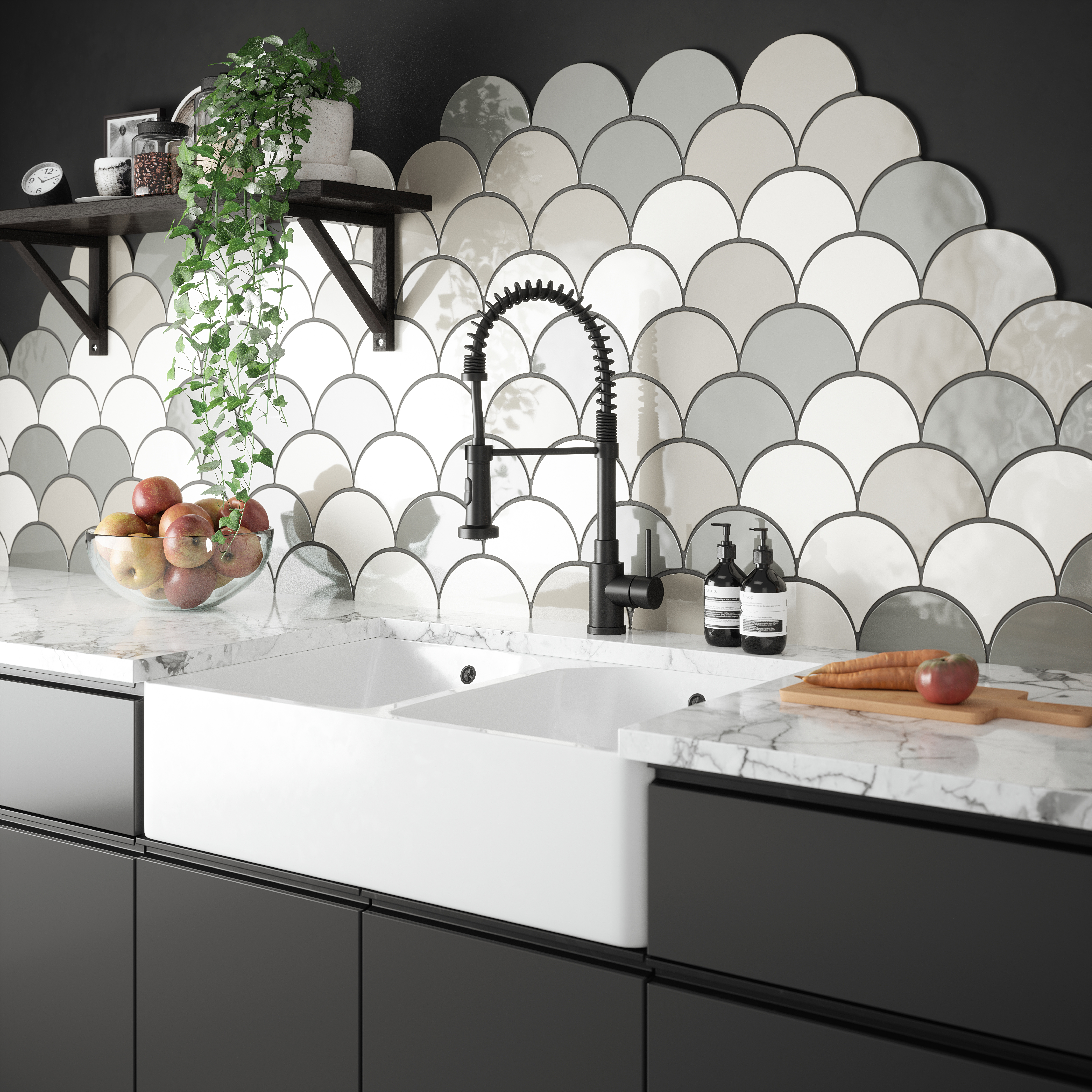
We love these scalloped tiles – they’re easy on the eye and certainly brighten up this kitchen wall.
You don’t need iridescent tiles to do this, as long as they’re light in color they will work and you can use various shades too as shown here.
24. Paint your furniture white

If you’re on a budget, and love the furniture style you have already, then why not upgrade it with paint?
You don’t need to do this with everything, just the main piece – in this case the bed. It will uplift the room instantly and create a rustic style look that works really well with wood paneling.
25. Go for tones of grey

As mentioned above, it’s not always white that will brighten up a room – and if you’re not partial to a brighter color then shade of grey will work well.
White can be quite sterile, so use neutrals like greys to add some warmth whilst lightening up your scheme at the same time. Keep to pale tones and don’t go above mid-grey.
26. Ditch dark bedding and choose a pretty pastel
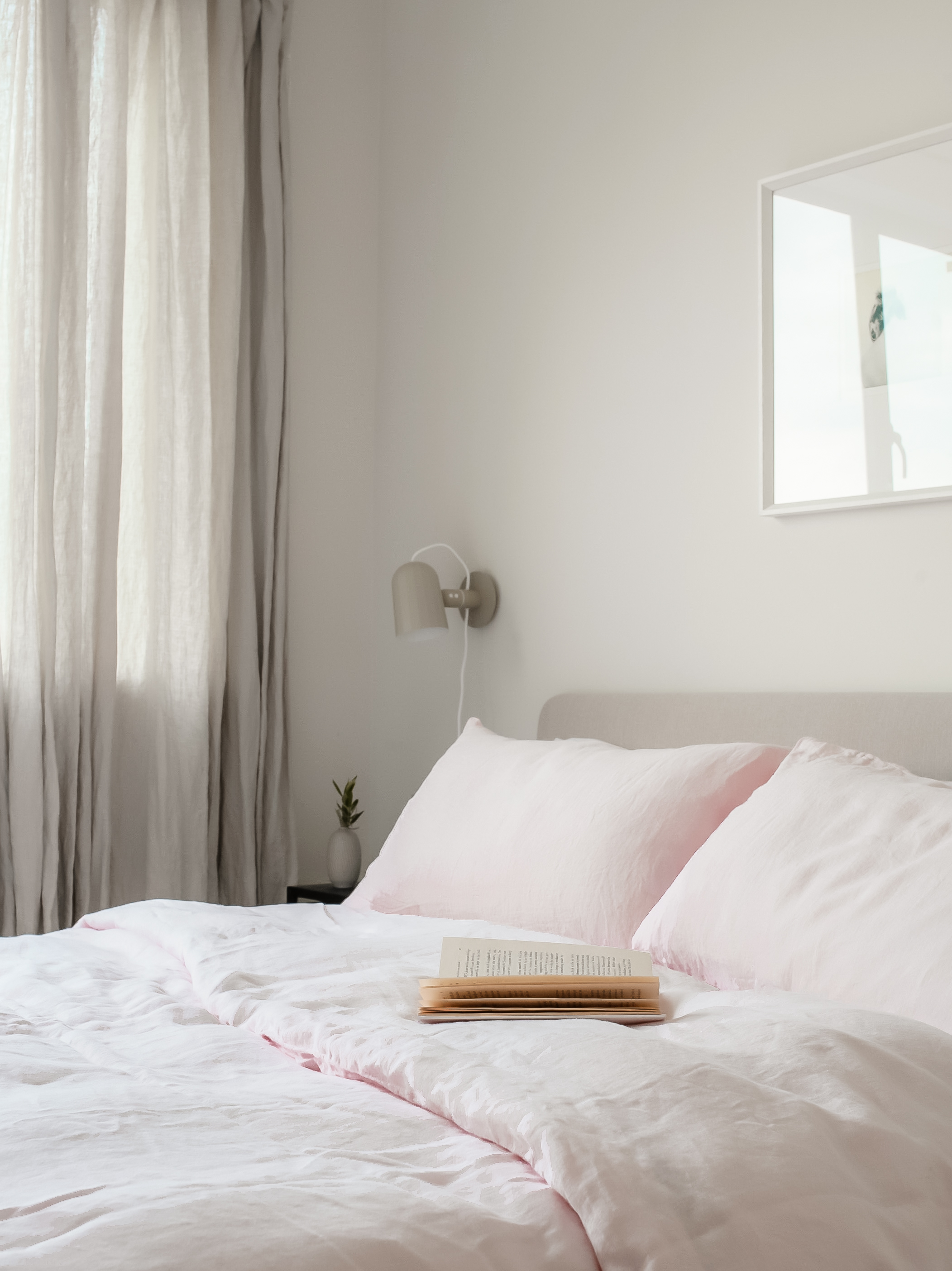
Sometimes the simple changes are the most effective. Upgrading your bedding to pale and pretty from dark and dramatic will make a huge difference and it won’t break the bank either.
Add in a blanket, pale grey drapes and white framed prints and your bedroom will feel light and airy in no time.
How do you make a dark room look brighter?
There are several ways you can do this, the first being by painting a room in the most fitting color scheme. It can solve a multitude of issues and brightening up a room is one it can remedy instantly. White is the obvious color choice, but you can use any shades that are light.
Add in some pale flooring, lightweight furniture and some well placed lights and you see a difference in no time.
How can I brighten up a room without natural light?
This is where lighting is key, make sure you layer your lighting – table lamps, floor lamps and pendants, and don’t forget good old fairy lights.
Mirrors are brilliant at bouncing light around and creating the illusion of space and keep your furniture and accessories light too.
Join our newsletter
Get small space home decor ideas, celeb inspiration, DIY tips and more, straight to your inbox!
Hebe joined the Real Homes team in early 2018 as Staff Writer before moving to the Livingetc team in 2021 where she took on a role as Digital Editor. She loves boho and 70's style and is a big fan of Instagram as a source of interiors inspiration. When she isn't writing about interiors, she is renovating her own spaces – be it wallpapering a hallway, painting kitchen cupboards or converting a van.
-
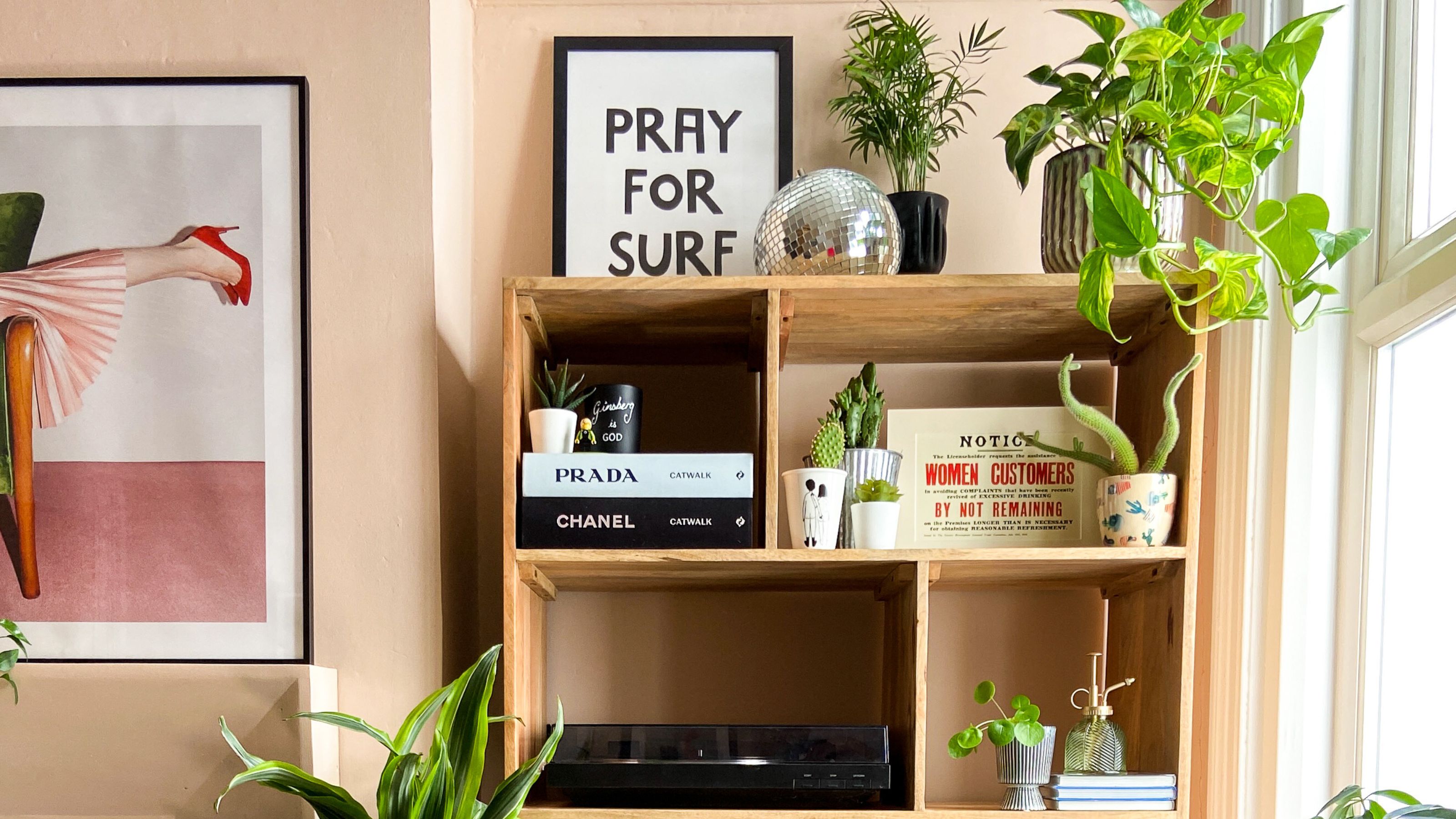 What is bookshelf wealth? Everything you need to know about the cozy design trend
What is bookshelf wealth? Everything you need to know about the cozy design trendWondering what bookshelf wealth is? We've chatted with interior designers to find out what bookshelf wealth is and how to style it in your home
By Eve Smallman Published
-
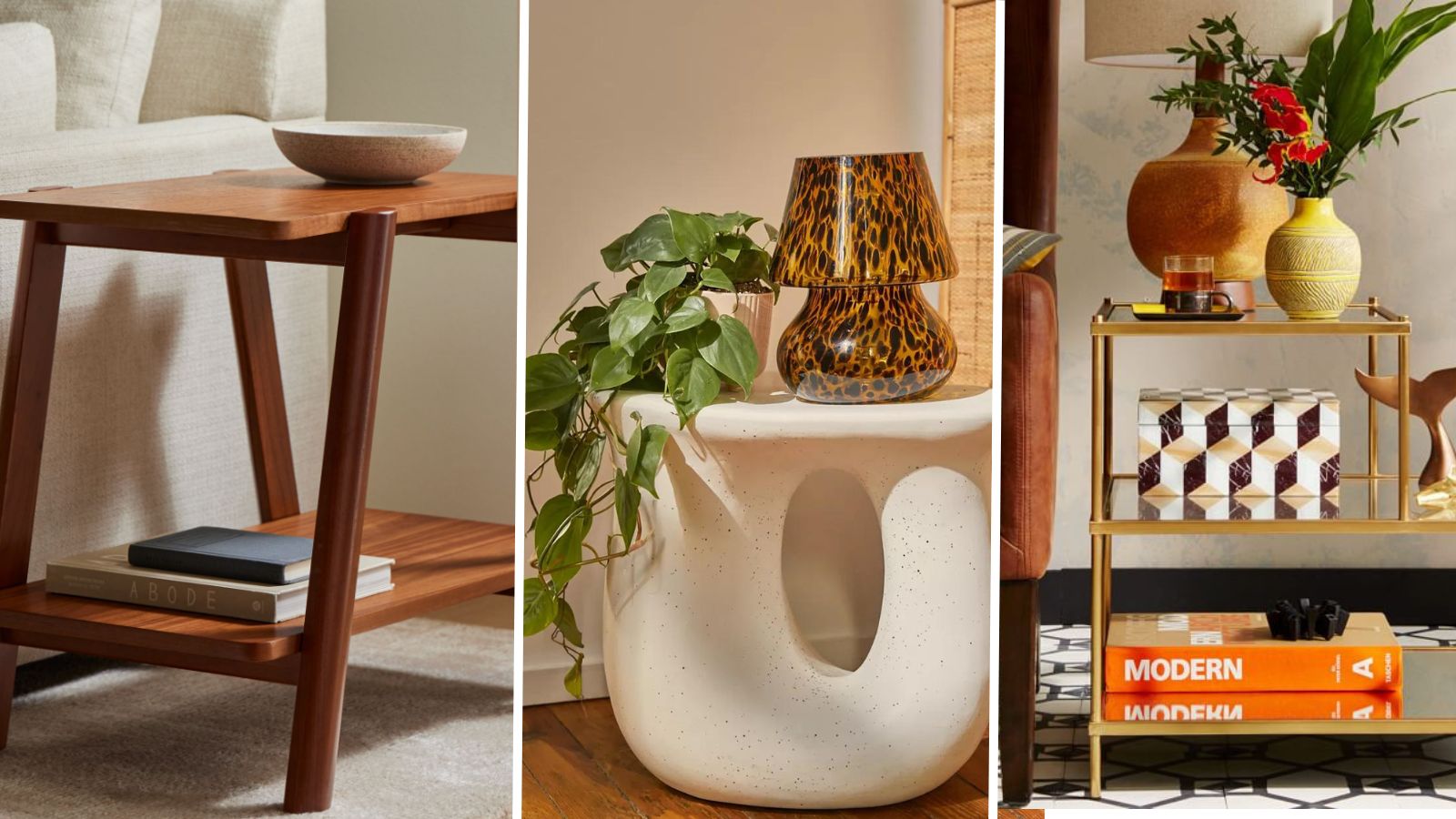 How to style small living room end tables — enjoy chic zoning with 8 expert tips
How to style small living room end tables — enjoy chic zoning with 8 expert tips8 expert-approved tips for how to style small living room end tables
By Jessie Quinn Published
-
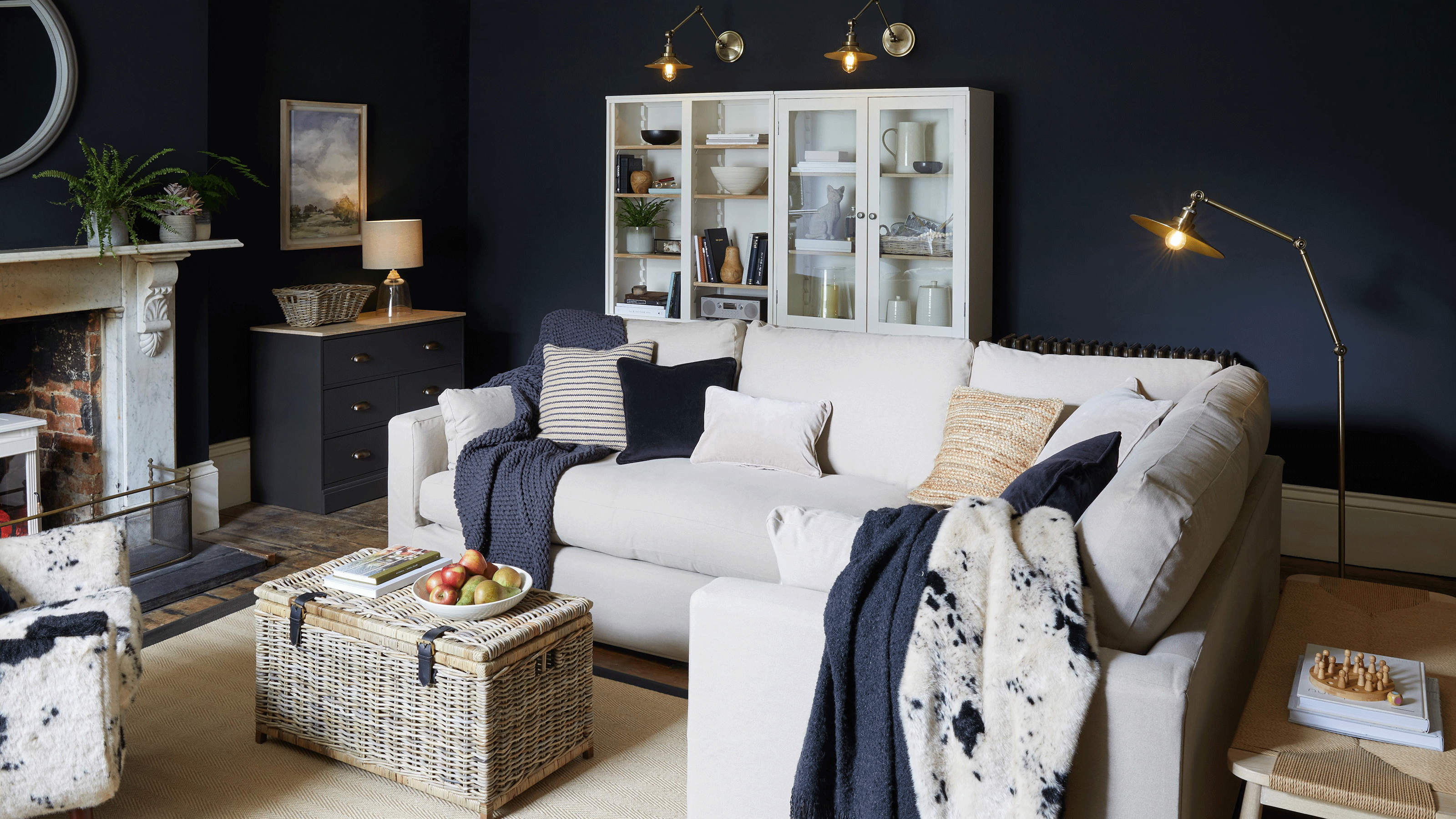 14 best ways to arrange living room furniture — from the experts
14 best ways to arrange living room furniture — from the expertsHow you arrange living room furniture will make or break the space you have. Learn the right way to organize your reception
By Christina Chrysostomou Published
-
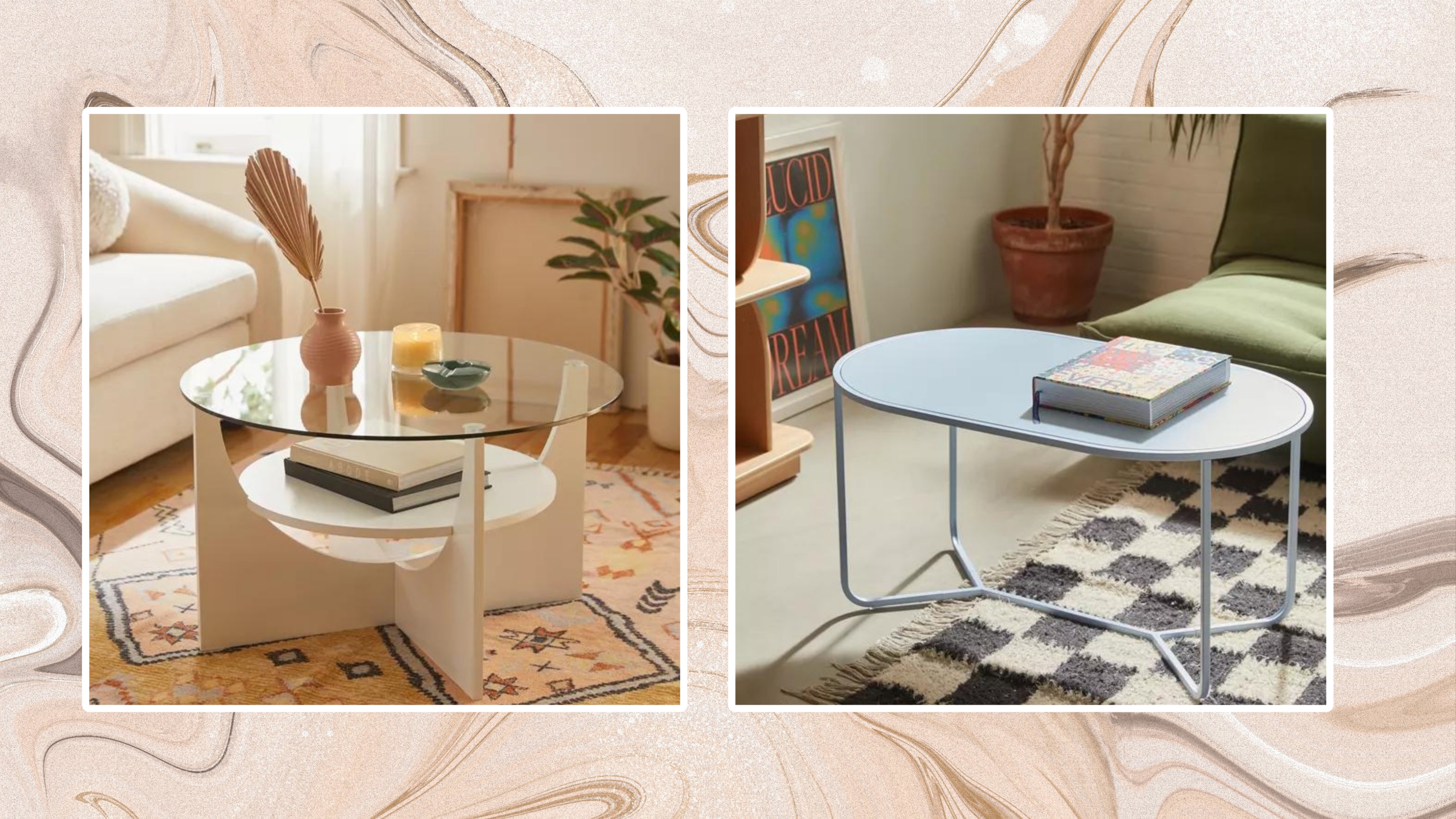 Out of the 22 coffee tables at Urban Outfitters, these are the 9 I'd pop my iced latte on
Out of the 22 coffee tables at Urban Outfitters, these are the 9 I'd pop my iced latte onFrom round to oblong styles made from glass, metal, concrete, and wood, these Urban Outfitters coffee tables deliver on style, form, and functionality.
By Christina Chrysostomou Published
-
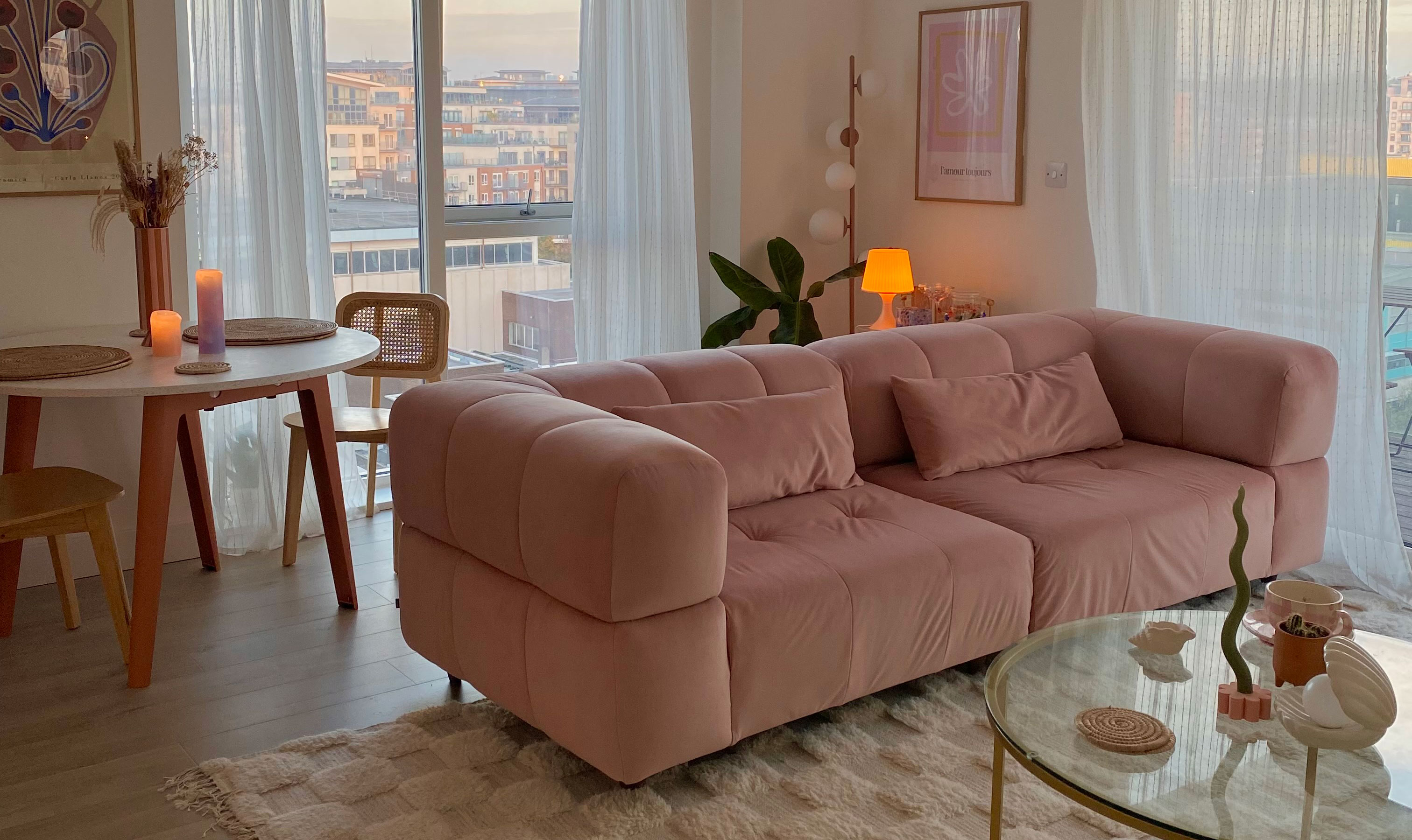 7 living room design trends for 2024 to use right now
7 living room design trends for 2024 to use right now2024 small living room design trends will be all about sparking conversations and cozy vibes. We speak to design experts to find out what these are.
By Camille Dubuis-Welch Last updated
-
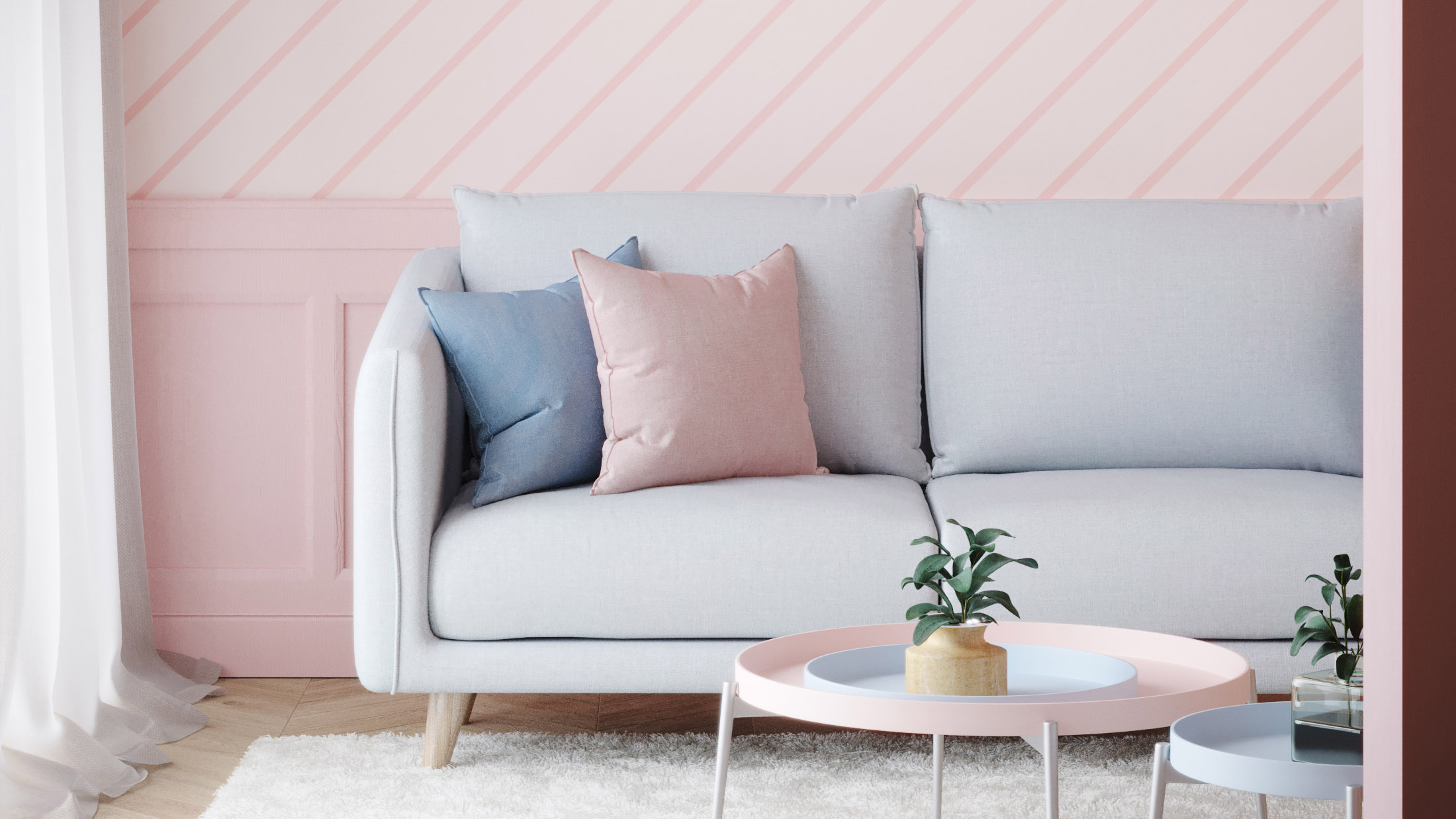 Pink room decor ideas: 28 ways to use this sweet shade
Pink room decor ideas: 28 ways to use this sweet shadePink room decor is always a winning option – use these fail-safe design ideas for a grown-up take on this popular color
By Hebe Hatton Last updated
-
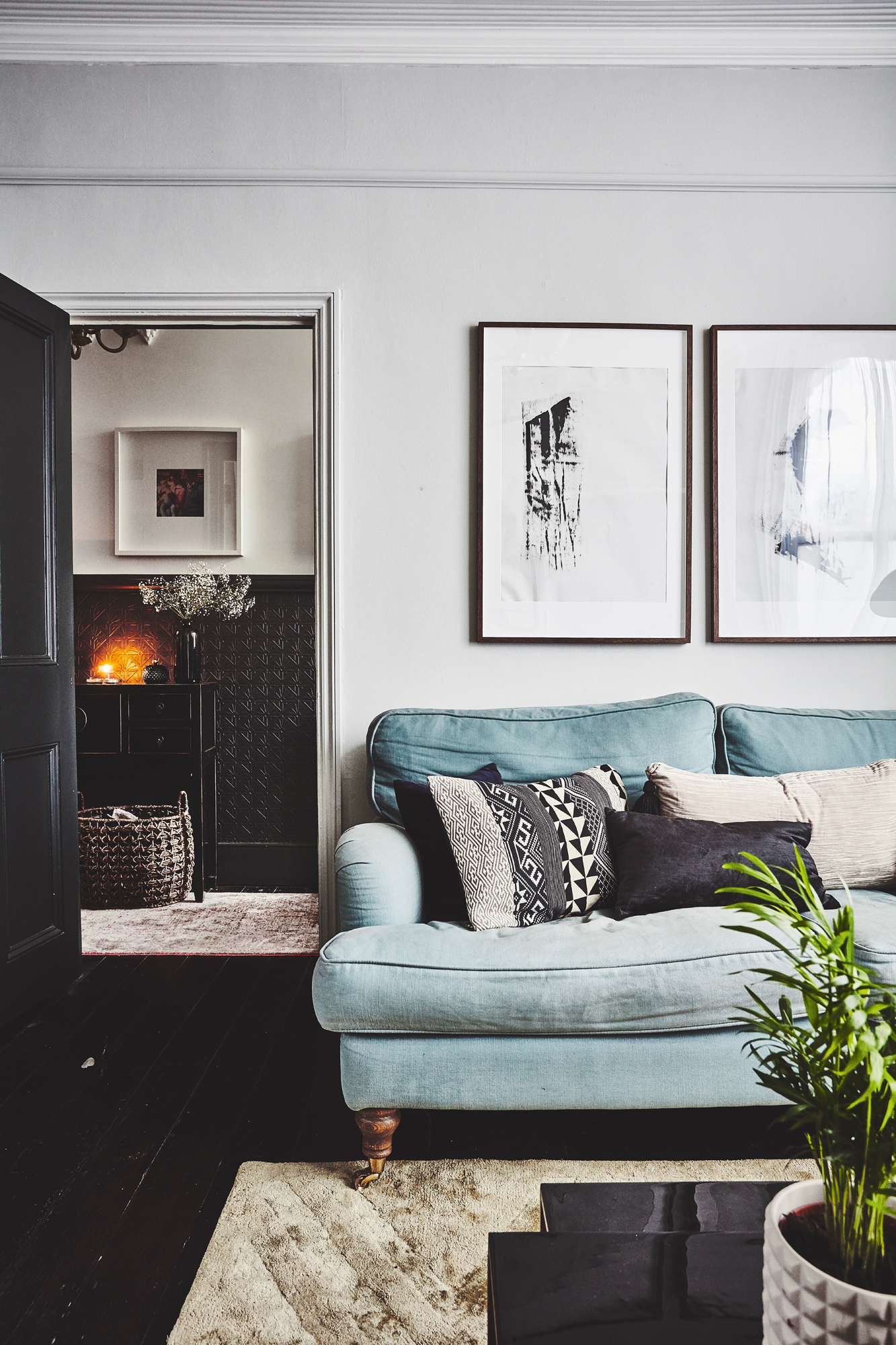 Sofa fabrics: 12 tips for choosing the best upholstery for your furniture
Sofa fabrics: 12 tips for choosing the best upholstery for your furnitureNot sure which sofa fabric to choose? Follow our expert guide on how to get the style, color and durability right
By Anna Cottrell Published
-
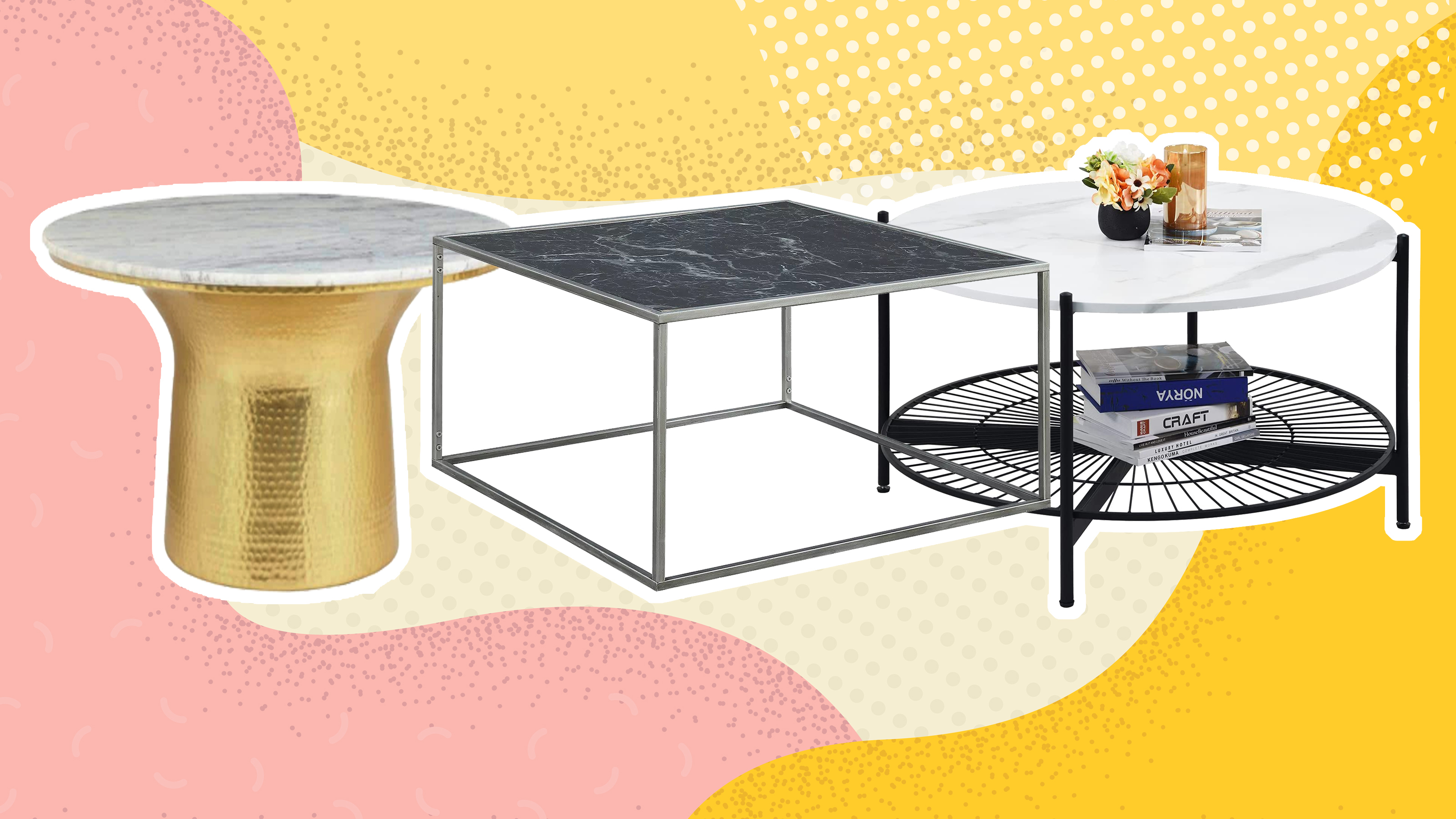 Marble coffee tables
Marble coffee tablesBrowse these marble coffee tables to add grandeur and luxe to your living room
By Annie Collyer Published

